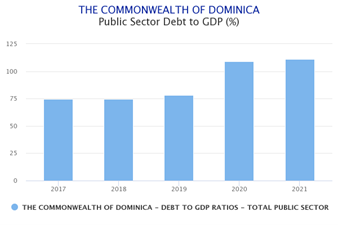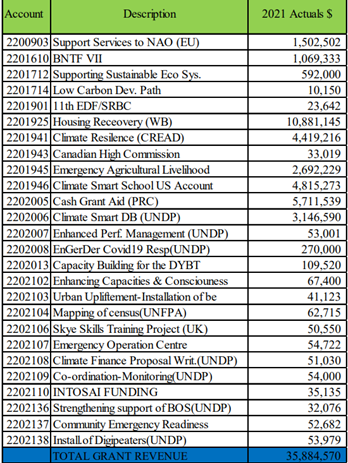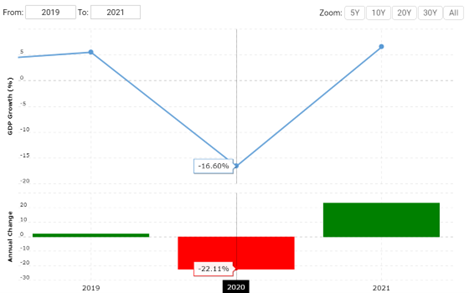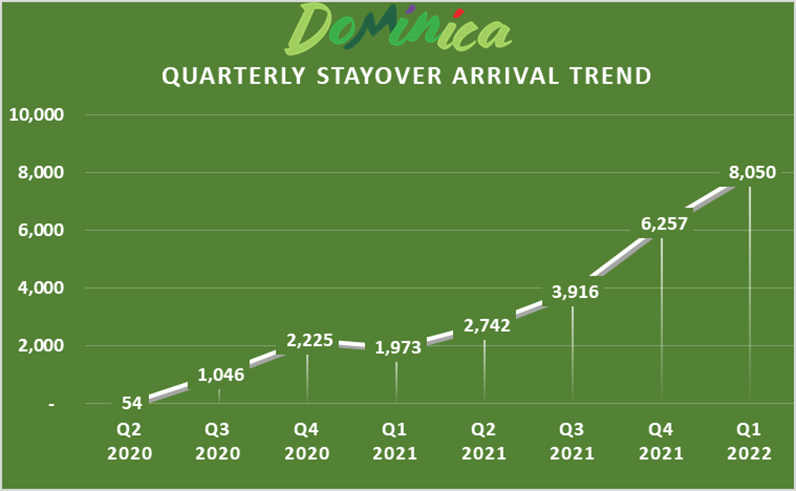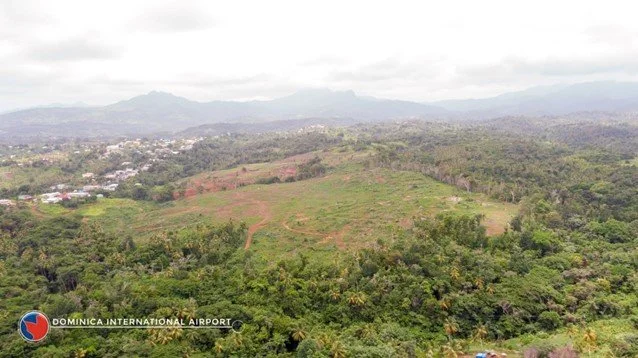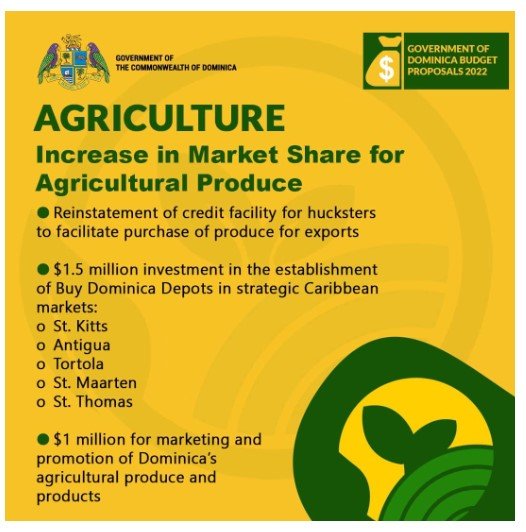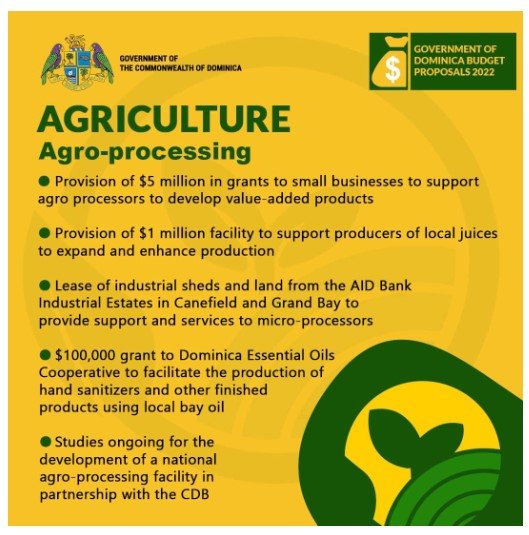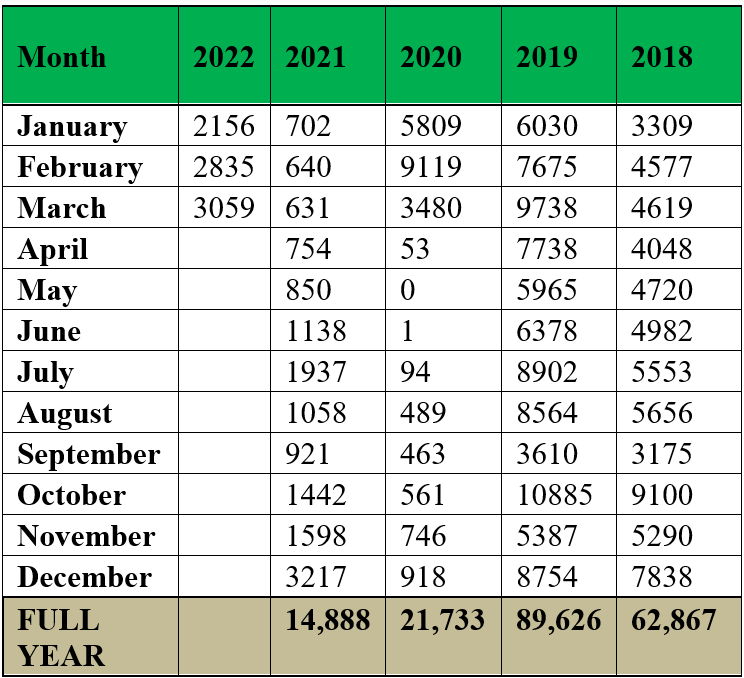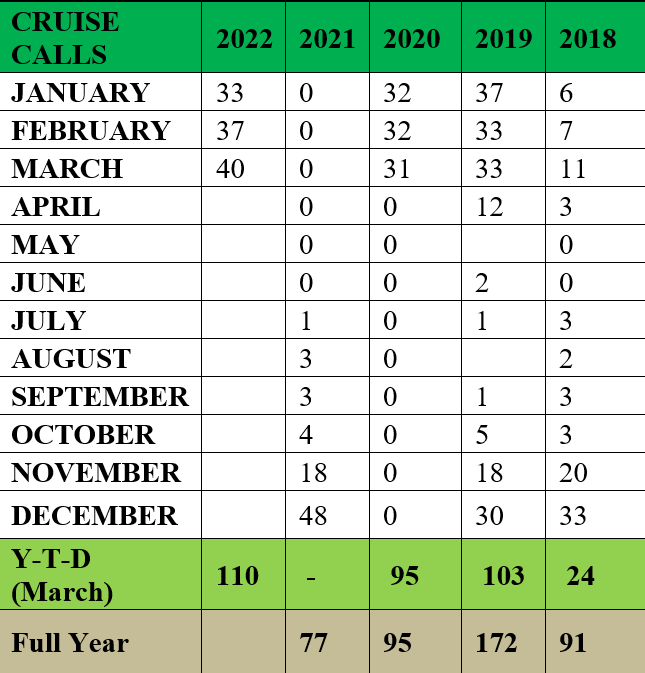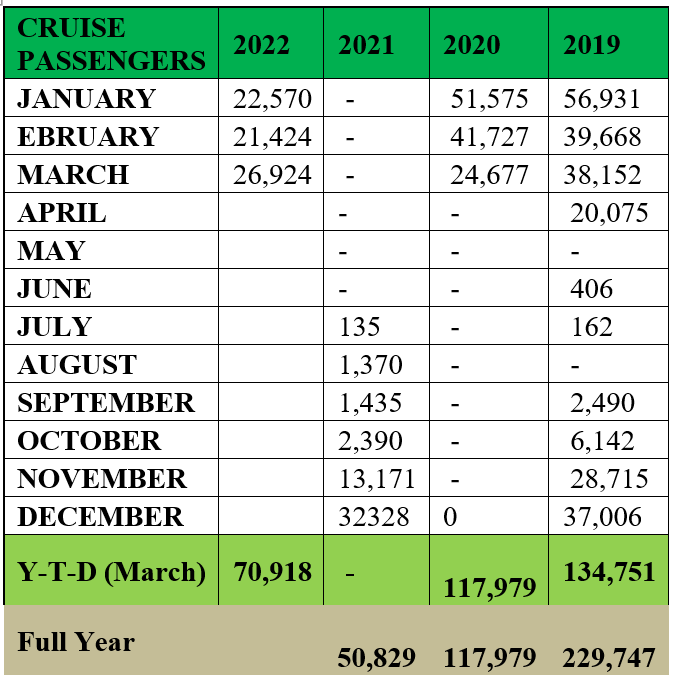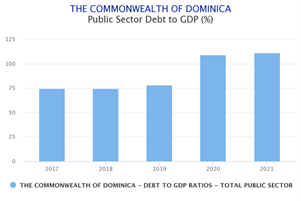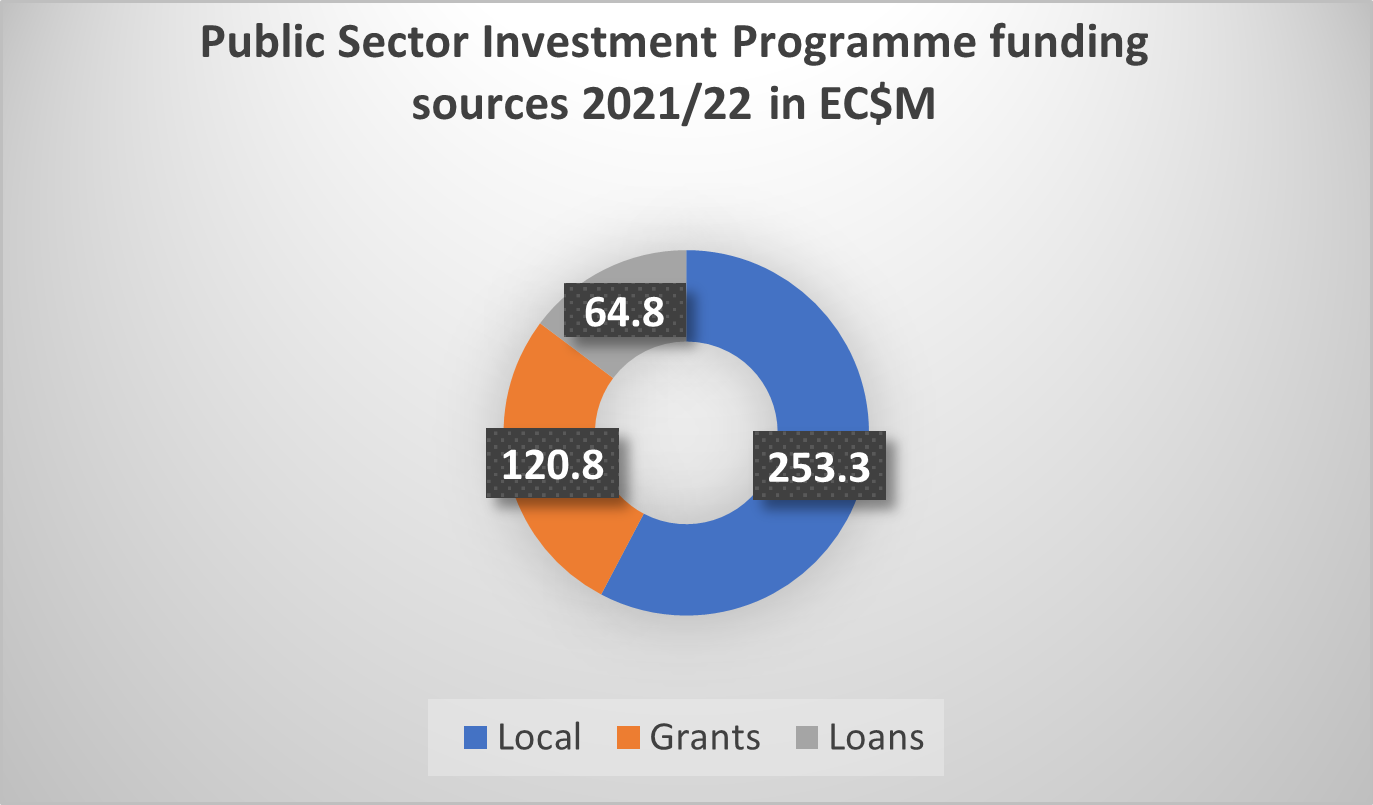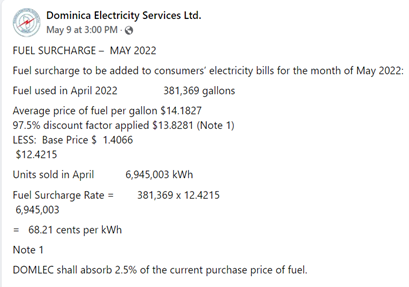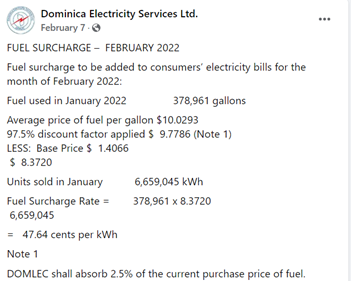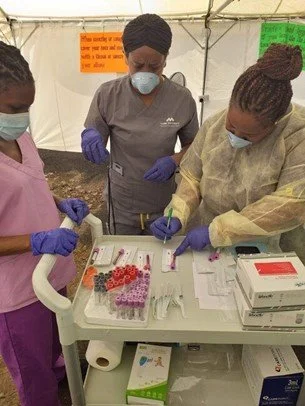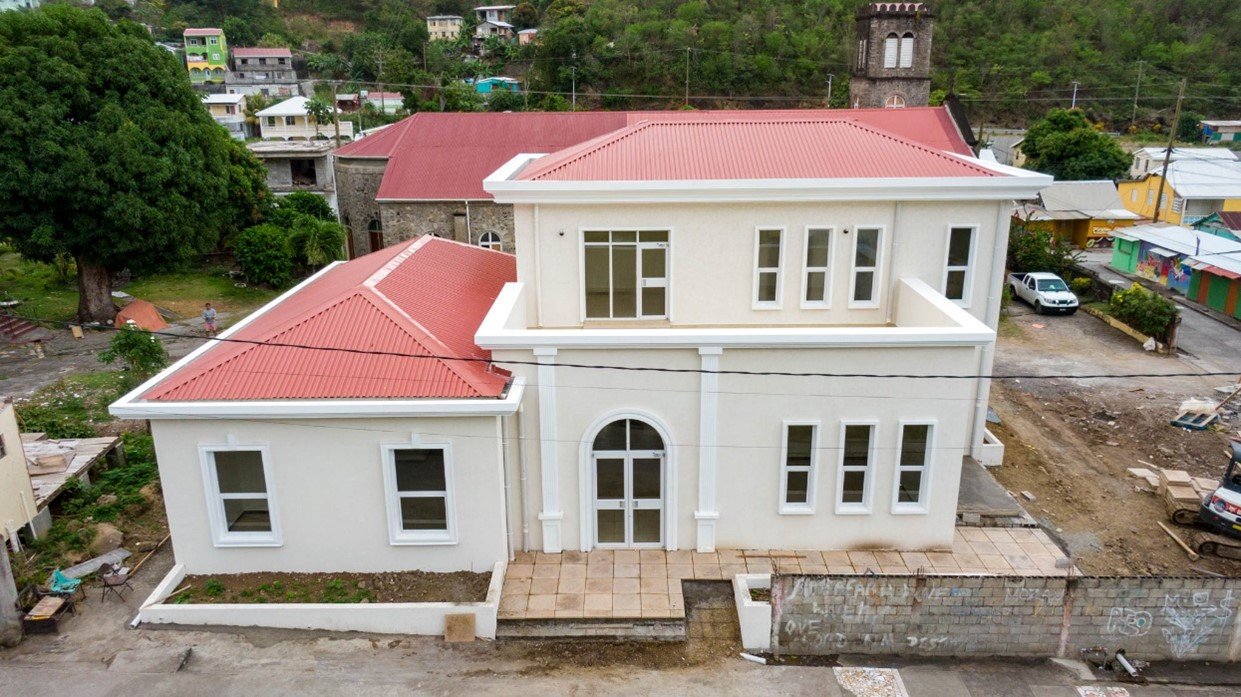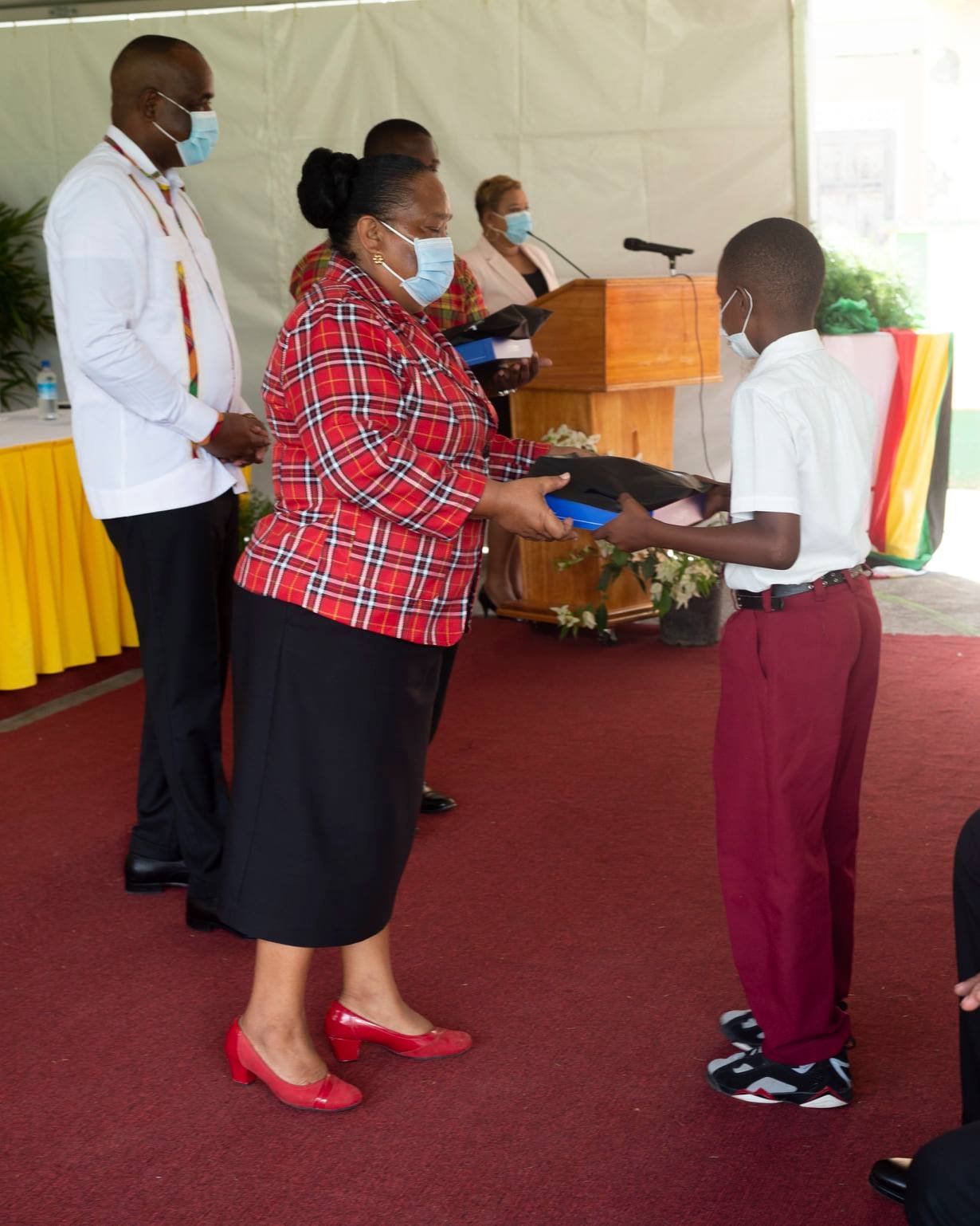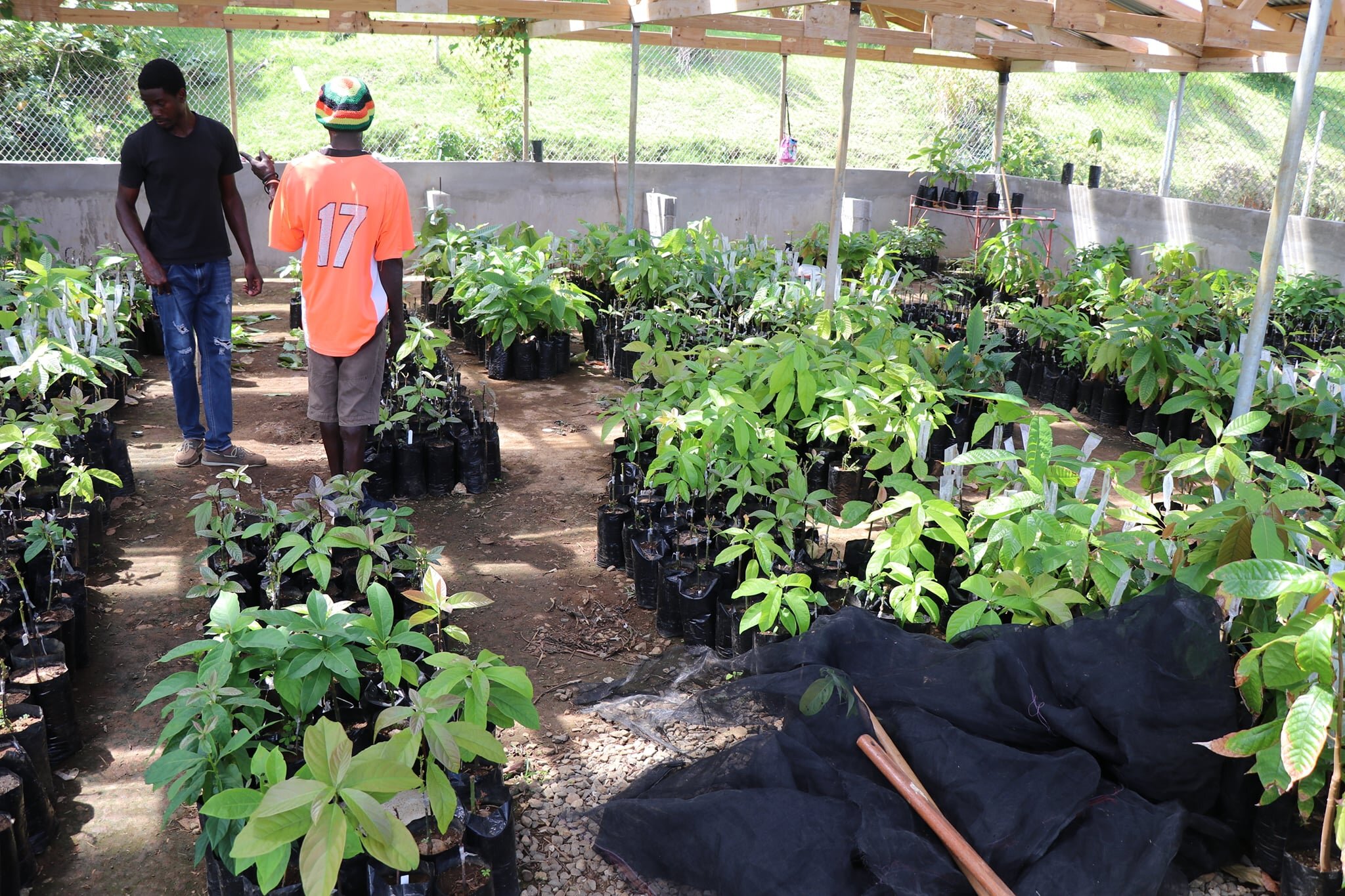Dominica
Rafal Michal Gadomski/Shutterstock.com
Country: Dominica
Capital: Roseau
Area: 290 square miles
Population: 72,167 (UN data estimates)
COVID-19 cases: 6257
Active: 395
Recoveries: 5820
Deaths: 42
Recipients of first dose: 29,184
Recipients of second dose: 27,323
Roseau, SEPTEMBER 22, 2022 (MIC) -
At the start of this COVID-19 Monitoring Hub Project in February 2021, Dominica experienced a revenue shortfall of 33.6 percent and a sharp increase in unplanned expenses associated with the containment of the COVID-19 virus in the 2019/2020 financial year.
Eighteen months later, this research project culminates at a time when the Parliament has approved a National Budget of US$415,388,000 (EC$1.13 billion), as the Government continues to implement a COVID-19 Recovery Plan. Simultaneously, Government has allocated a total of US$35.3 million (EC$96.1 million) this financial year to service its outstanding debts, as it attempts to offset significant economic and social hardship owing to its dependence on tourism receipts, which declined amidst the pandemic.
Debt profile
Central Government’ expenses exceeded its revenues in the last financial year (2021/2022). Recurrent expenditure increased by 12.5 percent (FY2021/2022) representing US$240 million (EC$650 million), from last financial year’s (2020/2021) US$224 million (EC$606.5 million). This is due to a 20.5 percent increase in expenditure on goods and services.
Implementation of a transformative capital programme, according to Prime Minister Roosevelt Skerrit, will contribute to a drastic increase in total expenditure (FY2022/2023) estimated at US$.44 billion (EC$1.2 billion). Of this amount, EC$650.0 million is earmarked for recurrent expenditure -inclusive of debt amortization and interest, while US$240 million (EC$566.4M) will be allocated to capital expenses.
As of June 2022, the country’s external debt stands at US$349.9 (EC$951.8 million). Of that amount, US$319.7M (EC$869.6M) is for Central Government, while US$30.2M (EC$82.2M) is debt guaranteed for statutory bodies. Domestic debt at that same time was US$237.3 (EC$645.5M), with US$213.3M (EC$580.3M) held by Central Government and US$23.9 (EC$65.2M) is guaranteed for statutory corporations.
External and domestic debt in Dominica from 2019 to 2022. Source : Director of Audit report.
For Dominica, achieving the regional public debt target of 60 percent of the Gross Domestic Product by 2030 is challenging. According to the International Monetary Fund (IMF) public debt of the Eastern Caribbean Central Union economy reached 90 percent of GDP in 2021 and is expected to remain at an elevated level for years to come.
Public Sector Debt to GDP.
The country’s Public Sector Debt-to-GDP ratio continued to climb from 2019 to 78 percent, 109 percent in 2020, and 111 percent in 2021.
A State is at a higher risk of defaulting on loan payments with high Debt-to-GDP ratios; however, the prime minister noted in 2020 that Government did not default on its debt service obligations and continues to make timely debt payments in keeping with a Medium-Term Debt Strategy. Still, the government participated in a Debt Service Suspension Initiative in 2020 and 2021 by the World Bank and the IMF, leading to a suspension of US$1.4 million in debt service payments owed to these institutions. Dominica’s risk of external debt distress was rated as “high.”
Citizenship By Investment (CBI) leading public sector revenues
Tax revenue grew by 4.4 percent over the previous year (2020/2021). Increases were recorded in collections from taxes on domestic goods and services, and taxes on international trade and transactions, whilst there were reductions in revenues from both corporate income tax and property taxes. The Citizenship By Investment (CBI) Programme remains the highest source of non-tax revenue in (FY2021/2022) raking in US$175 million (EC$475.2M) – an increase from last financial year’s (2020/2021) earnings of US$109 million (EC$296,573,154).
The CBI has been a pillar in the funding of public sector capital investment projects and debt repayment. The island’s CBI product has also been ranked number one in the CBI Index for six consecutive years, and scored full marks in the areas of Minimum Outlay, Mandatory Travel or Residence, Ease of Processing, Due Diligence, Family and Certainty of Product. It is the main source of investment for Government’s Vulnerability, Risk and Resilience Fund set up at the Eastern Caribbean Central Bank (ECCB). As of October 2020, an amount of US$185,000 (EC$500,000) has been deposited in that fund monthly from CBI revenues, and other sources, including contributions from development partners, to cover emergency expenditure following disasters. As of July end, savings in that fund stood at US$4 million (EC$11 million).
Government is also projecting an increase in non-tax revenue for FY2022/2023 – an anticipated amount of US$189 million (EC$513.8M) or 57.3 percent of the total recurrent revenue, which is predominantly from the CBI Programme.
The National Budget shows that total revenues for 2022/2023 is estimated at US$.41 billion (EC$1.13 billion) and makeup the following:
recurrent revenue in the amount of EC$896.2M
local capital revenue totaling EC$5.1M
receipts from loans in the amount of EC$77.1M
grant resources in the sum of EC$155.17M
The expectation is that receipts from external grants funds will increase for FY2022/2023. External grants for last financial year (2021/2022) is estimated EC$120,798,380 (US$44 million). Receipts from External Grant Funds dropped significantly in FY2020/2021, amounting to EC$35,884,570 (US$12 million), in contrast to External Grants in 2019/2020, which was EC$175,156,776 (US$64 million).
The greatest contributor to its External Grants Portfolio in 2021/2022 was the Government of the United Kingdom with an amount of (US$39 million) EC$107M to upgrade a water supply and wastewater project. Work is earmarked to begin September 2022.
The Government of the People’s Republic of China is also providing grant funding of (US$4.8 million) EC$13M for construction of an Agriculture Science Complex Building, in the northern town of Portsmouth.
Audited external grant fund for FY 2020/2021. Source: Director of Audit Report 2021.
Health took the spotlight when the country recorded its first COVID-19 case in 2020. Since then 12 new health and wellness centres have been constructed through funding of the Citizenship by Investment (CBI) revenue. Its main hospital in the Capital of Roseau, the Dominica China Friendship Hospital – is also almost complete. An eye centre was recently commissioned there, and before that an MRI service was launched last year. A new hospital in the north-eastern town of Marigot has been completed and will hopefully open to the public this year. The Ministry of Health, Wellness and New Health Investment has received the fifth highest budgetary allocation.
The Marigot Hospital has a 75-bed capacity. Source: Montreal Management Consultants (MMC) Development Ltd.
While Dominica struggles to pick up the pieces of the impact of COVID-19 and the wider effects of inflation, the IMF has stressed the need for prudent use of its CBI revenue.
Tracking COVID-related multi-lateral support
The anticipated financial stress on the economy influenced the government to borrow EC$52.8 million (US$19.5 million) from multi-lateral institutions initially for FY2019/2020 to manage the spread of the COVID-19 disease and cushion the impact on the economy.
The total amount of COVID-related loans borrowed were:
International Monetary Fund (IMF): A loan of US$14 million (EC$37.9 million) came from the IMF/Rapid Credit Facility-COVID-19,’ to help cover its balance of payment needs associated with the pandemic. The disbursed outstanding debt for that purpose as of June 2022 is EC$37,312,391, as recorded in Government’s 2022/2023 National Budget.
World Bank (WB): An amount of EC$67 million (US$25 million) was borrowed from the World Bank for ‘First COVID-19 Response and Recovery Programmatic Development Policy Financing’. The government will start repaying this debt commencing May 15, 2031, with a grace period of 10 years and a maturity of 40 years.
Another US$30 million (EC$81 million) was approved and disbursed for Dominica as of June 2022, under a Second COVID-19 Response and Recovery Programme.
Additional disbursements included US$6.6 million (EC$17.8 million) to bolster the capacity of the public health system to manage COVID-19, US$1.5M to support agriculture and strengthen national food security, and US$5.2 million (EC$14 million) for income support to over 7,000 vulnerable people hinging on set criteria, through an Employee and Small Business Grants Programme.
Caribbean Development Bank (CDB): A COVID-19 response loan of US$20 million (EC$67 million) was given by the CDB intended to help the country close financing gaps which worsened due to the Covid-19 pandemic. An EC$27.8 million (US$10 million) credit facility was also launched through the Agriculture Investment and Development Bank to facilitate Micro, Small and Medium-sized Enterprises (MSME) access to working capital to overcome disruptions in their business operations and income.
Organization of Petroleum Exporting Countries (OPEC) – US$10 million (27 million) borrowed for COVID-19- Emergency Response Public Health Service Programme.
Former IMF Economist Dr Thompson Fontaine has suggested that Government should have used more of its revenue from the Citizenship By Investment (CBI) Programme to help it recover from the pandemic, instead of significantly borrowing from multi-laterals.
Economic performance and outlook
Facing what the IMF has described as the “severe” economic impact of the pandemic, the country has experienced an 11 percent downturn in its economy in 2020. The hardest hit sectors include wholesale and retail trade, construction, and tourism - which in 2019 accounted for 36.9 percent of GDP. Consumer prices fell in 2020 fell by 0.7 percent, reflecting lower import prices. However, the IMF noted prices have been rebounding with the Consumer Price Index measuring 3.0 percent in 2021.
Economic growth from 2019-2021. Data source: World Bank.
An overall fiscal deficit of 7.2 percent of GDP was recorded in the financial year 2020/21. When a government has a fiscal deficit it is spending more money than it generates in revenues. Economic activity is estimated to have increased by 6.5 percent in 2021 compared to a decline of 16.6 percent in previous year, due to increased investment in the construction and agricultural sectors.
It is expected that the economy will continue to grow in 2022.
Optimistic growth for tourism
Fully relaxed travel protocols and the return of the World Creole Music Festival with headline Afro Beats artiste Burna Boy during the Independence Season are expected to make the island appealing to tourists. Before this business year, value added in the hotels and restaurants sector was estimated to have declined by 14 per cent in 2021, following a 62.1 percent reduction in the previous year – a consequence of a 54.6 percent decline in the total number of visitors to 66,164 reflecting a significant reduction in stay over arrivals and cruise ship passengers.
Cruise tourists on the Roseau Bay Front. Photo credit: Discover Dominica Authority.
From Quarter 4 of 2021, stayover arrivals quadrupled, with the launch of a direct American Airlines flight out of Miami making the difference. In the first quarter of 2022, there was a 300 percent increase in stayover arrivals and a 16 percent increase in cruise calls over the corresponding period in 2021, representing of 8,050 visitors.
Quarterly arrival stayover trend. Source: Discover Dominica Authority
Month-on-month improvements were seen in arrivals. Data shows the upward trend in quarterly arrivals since the beginning of the pandemic. Significant progress has also been made towards a proposed international airport, with the China Railway Company No. Five being awarded the contract for its construction. The EC$1-Billion (US$370 million) airport which will be built north-east of here, is projected to be completed in November 2026.
International airport project site in Wesley. Source: Dominica International Airport – Facebook.
Output in Agriculture on upward trajectory
The World Bank Funded Emergency Agriculture Livelihoods and Climate Programme has been a staple component of reviving the industry from COVID-19 impacts, with an injection of US$16.4 million (EC$44.3 million) in additional financing in 2020.
A total of EC$55 million (US$20.3 million) is allocated for investments in agriculture this year for both programmes/projects and operations, representing an increase of EC$15.5 million (US$5.7 million) over the last Fiscal Year.
The investment includes a special fund of EC$1 million (US$370,000) for banana farmers to satisfy growing local and export demands, as well as an EC$1 million (US$370,000) for initial investment in the provision of greenhouses, saran netting, equipment and irrigation systems to ensure the availability of fresh fruits and vegetables year-round. Other measures are referenced in the graphic above.
The goal is to increase agriculture’s contribution to GDP to EC$700 million by 2030. The Agriculture 2030 plan focuses on increased production of produce, livestock, horticulture, and fishing, expanding market share and increasing agro-processing output.
Fuel and electricity
COVID-19 brought about supply chain disruptions, rising food prices and unemployment. Compounding the state of the economy was the Ukraine-Russian war which affected the price of fuel on the world market. As a result, the price of electricity fuel surcharge and motor fuel was at record-breaking prices.
Even as the economy is expected to continue to expand in 2022, the IMF has concluded that this will be reliant on the pace of recovery of major trading partners coupled with the demand for international travel. There will be a need for policies targeting the vulnerable to address specific impacts on energy and food prices.
With the government’s acquisition of majority ownership in the power company, DOMLEC, a much-awaited relief for electricity consumers was introduced in the National Budget in the form of an increase of V.A.T free units from 100 kwh to 150 kwh of electricity for every billing period and removal of V.A.T charged on fuel surcharge on every DOMLEC bill.
The response to public outrage at the high cost of fuel at the pumps was the granting of a subsidy on fuel imports on two occasions – the first time in May followed by another price reduction in August. Those reductions fulfilled a waiver of the 4% customs service charge on gasoline and diesel and ultra low sulphur diesel and a subsidy on the landing cost of gasoline and diesel amounting to 85 cents per gallon on gasoline and 21 cents per gallon on diesel. This will take effect until the retail price of diesel and gasoline returns to below EC$15.00 per gallon.
A long-term response to the high costs of electricity is a proposed 10MW Geothermal Power Plant, which is expected to be completed by 2024.
Other relief measures included:
Implementation of abandoned properties surcharge at a rate of 5 cents per square foot per year
Removal of V.A.T on agricultural tools and potting soil
EC$1M allocation for continuation of EC$10,000 grants for first-time home buyers and builders
Permanent reduction of land transfer fees
50 percent reduction in motor vehicle licenses for taxis, public buses, trucks and dumpers for hire for one year from August 2022 to July 2023
Discontinuation of Highway Maintenance Levy of EC$100 for owners of private vehicles and EC$150 for owners of commercial vehicles, trucks dumpers and trailers
Future Housing Programme, in which Government will construct homes for purchase by young professionals and the youth in the western community of Warner. These homes will contain two (2) or three (3) bedrooms with an option to add other amenities based on the individual's financial ability.
The impact of fluctuations in commercial activities and trade on the private sector are far-reaching. The chief private sector representative body, the Dominica Association of Industry and Commerce (DAIC), made several recommendations aimed at enhancing the socio-economic development of the country. Two of those recommendations which were passed in this year’s National Budget are: an increased Property Tax for enhancing derelict properties in Roseau and permanent reduction of Land Transfer Fees.
Looking forward
Even though Dominica’s debt is significant, the positive trends in tourism and agriculture predict the island’s economic growth is on a positive trajectory. These, coupled with subsidies show that the government is injecting significant resources into its two major productive sectors. The outcome will be higher income generation and employment opportunities for those involved in tourism and agriculture. The outlook for 2022/2023 suggests a slight improvement in the government’s fiscal position with the primary deficit moving to 4.7 percent of GDP, owing to expected increases in revenue, especially from the CBI Programme.
The IMF has however stressed the need for prudent use of Dominica’s CBI revenue, recommending reallocation of windfall CBI revenue to balance public investment with financial resilience and debt sustainability to strengthen its economic position. Another recommendation to recover from the pandemic’s impact is for government’s fiscal plan to internalize the long-term implications of large public investments. Consumers, on the other hand, will have to continue to brace for high consumer prices due to the impact of imported inflation, stemming from a high U.S import bill.
The Economic Commission for Latin America and the Caribbean (CEPAL) has presented strategies and transformative initiatives for the island’s recovery, including use of new and innovative financing instruments, creating shock responsive social protection systems, transforming education models and the education sector, enhancing digital preparedness and improving options for disaster risk financing.
The newest public health concern, Monkey Pox, has made its way to CARICOM’s borders with Barbados and Jamaica recording cases. His Excellency President Charles Savarin has advised the country to keep a watchful eye for the disease.
Easing out of the brunt of COVID-19 infections, 53 percent of the target population has been vaccinated and the authorities are not enforcing the wearing of masks in a public space, although various businesses are still mandating masks be worn upon entry. It is also clear that the visibility of COVID-19-related public awareness programmes has fizzled. In the sphere of education, face-to-face classes are back on.
Even as the government is projecting economic growth and life begins to return to normal in the aftermath of the height of the COVID-19 pandemic, the impact of instability in the health sector and the economy have deeply and undeniably affected the average Dominican. As the country moves forward, their personal recovery must remain a priority.
Roseau, may 31, 2022 (MIC) -
In 2019, the year preceding the COVID-19 outbreak, the Eastern Caribbean nation of Dominica was moving towards a positive economic trajectory. The Government of the Commonwealth State was still implementing its ‘Build Back Better’ campaign in the wake of a Category 5 hurricane in 2017, which crippled key industries of agriculture, tourism, and manufacturing. The losses from Hurricane Maria amounted to US$1.37 billion or 226 per cent of Dominica’s Gross Domestic Product (GDP). In 2019, economic activity was sustained due to post-hurricane construction and growth in tourism and agricultural sectors. The economy grew by 5.7 percent that year, returning to its pre-hurricane levels. However, the COVID-19 pandemic foiled any plans of continued economic growth, resulting in an estimated decline in GDP of 11 percent in 2020.
To date, the World Bank’s projection is that “post-COVID-19 efforts to boost climate resilience, including investments in energy infrastructure, port and airport modernization and agricultural productivity should contribute to increased growth prospects over the medium-term.”
Tourism industry outlook
Tourism is one of the main pillars of growth in the island’s economy.
Coming out of the deadly 2017 Hurricane Maria, Prime Minister Roosevelt Skerrit articulated that for the 2018/2019 financial year, tourism would have played a major role in rebuilding economic resilience, maintaining sustainable livelihoods, and enhancing the ability of the economy to rebound after a disaster. Total tourism receipts went from EC$317 million (US$ 117 million) in 2019 to EC$75 million (US$27 million) in 2020.
According to the Caribbean Tourism Organization (CTO), when the pandemic hit the region in 2020, Caribbean tourist arrivals fell by over 65 percent and tourism expenditure slumped by up to 80 percent. That year, Dominica recorded a decline in stay-over arrivals by 76 percent and flight capacity of 52 percent. The industry lost over EC$150 million (US$55 million) in revenue and about 50% of industry workers “instantly lost their jobs”, as revealed by Tourism Minister Denise Charles.
Tourism expenditure statistics. (Data Source: Central Statistics Office)
As a result of lockdowns and social distancing protocols on the island in 2020, total expenditure by visitors plummeted by more than half of the previous year, totaling EC$72,505,517 (US$26,828,556) compared to 2019’s EC$317,771,464 (US$117,582,083). The largest chunk of monies spent by tourists, across all categories of tourists, come from stayovers. In 2019, the stay over tourism expenditure recorded was EC$296,670,563 (US$109,774,309), but dropped drastically to EC$62,180,337 (US$23,008,024) in 2020 - a direct consequence of port closures to curb the spread of the pandemic.
Recalling the impact, President of the Dominica Hotel and Tourism Association (DHTA) and General Manager of Rosalie Bay Resort, Avril Coipel noted hoteliers struggled with low occupancy levels between 0 to five percent in 2020 up to 2021, due to restrictive travel protocols, compounded by a new COVID-19 variant at the time - Omicron.
Consequently, in 2020, the hotel sector generated only EC$18,665,730 (US$6,906,710) from visitors on vacation when compared to EC$59,796,151 (US$22,125,825) in 2019 and EC$14,481,214 (US$5,358,352) in 2020 from those on business when compared to EC$45,037,041 (US$16,664,646) in 2019. See tourism expenditure statistics above.
IMAGE 01: Stay-over visitor arrivals 2018-2022. IMAGE 02: Cruise calls 2018-2022. IMAGE 03: Cruise passengers 2019-2022. (Data Source: Central Statistics Office)
The Safe in Nature Programme launched in 2020, was considered to have provided a lifeline to tourism accommodation property owners and tour operators.
Fast forward to the first quarter of 2022, signs of a rebound are bearing fruit for the industry. The government has allocated EC$18.1 million (US$66 million) to fund the Ministry of Tourism’s operations and EC$6 million (US$2.2 million) for tourism projects during the 2021/2022 financial year. This injection of funds is hoped to accelerate economic growth. Boosting air access, adding hotel capacity, and rehabilitating natural sites such as Champagne Beach, Emerald Pool, Indian River, Trafalgar Falls and Scott’s Head are on the government’s agenda. The island’s 14-segment Waitukubuli National Trail, which was affected by Hurricane Maria, will also undergo rehabilitation works.
In February 2022, the Discover Dominica Authority (DDA) launched a re-branding campaign titled ‘Destination Dominica’ and announced that the island is open to “everyone seeking a new adventure in nature.”
Hollywood Actor Michael Douglas and his children visited the island in February 2022. (Source: Discover Dominica Authority)
The easing of COVID-19 restrictions as of April 4, 2022, coincided with an increase in flight capacity on a new direct flight out of Miami on American Airlines (AA). The airline increased the number of flights from three in December 2021 to seven as of April 5, 2022. In April 2022, there was over 80 percent utilization of the new AA service on the Miami-Dominica route. It represented a capacity increase of over 130 percent on that route from the prior month.
Overall monthly visitor arrivals also show significant increases when compared to corresponding periods in 2021.
The absence of Carnival, the Jazz and Creole music festival as well as the World Creole Music Festival caused a slump in tourism. The Jazz and Creole music festival returned this May as the first major entertainment event since the relaxing of protocols. Before that, scaled-down Carnival events were hosted in a designated bubble in February.
L-R: CEO of Discover Dominica Authority Colin Piper, Prime Minister Roosevelt Skerrit, Mrs. Skerrit and Ambassador Emmanuel Nanthan at ‘Jazz & Creole 2022’. (Source: Discover Dominica Authority).
Fiscal position for 2021/2022
Public debt peaked at an estimated 106 percent of GDP in 2020 because of the decline in tax revenue and increase in health spending and social transfers, leading to a loss in revenue and more expenses.
Public Sector debt to GDP. (Source: Eastern Caribbean Central Bank)
The impact of the pandemic caused the government to incur additional debt in FY2020/2021, to finance its COVID-19 Response and Recovery Programme in health and agriculture, provide support to individuals and small businesses affected financially by the pandemic, assist with financing the Digital Transformation Programme and to rehabilitate the East Coast Road under the Disaster Vulnerability Reduction Project.
For FY2021/2022, debt service repayment by Central Government is projected at EC$93.9 million (US$34.7 million), comprising principal of EC$58.3 million (US$21.5 million) and interest of EC$35.6 million (US$13.1 million). Guaranteed debt repayment for that same period is projected at EC$17.3 million (US$6.4 million). Dominica received a debt suspension of $17.2 million (US$6.3 million) under the Debt Service Suspension Initiative (DSSI) in May 2020 by G-20 members and other creditors for one year.
Government has reduced its recurrent expenditure by 18.9 percent in the financial year 2020/2021 coming in at EC$491.7 million (US$181 million) in comparison with EC$606.6 million (US$224 million) in 2019/2020. All components of recurrent expenditure for FY2020/2021 showed decreases, except for personal emoluments.
Total recurrent expenditure for FY2021/2022 is estimated at EC$650 million (US$240 million), with the Ministry of Finance incurring the most expenses with EC$266 million (US$98 million), followed by the Ministry of Education, Human Resource Planning, Vocational Training and National Excellence with EC$76.9 million (US$28 million). Total expenditure however, rose to $923.1 million (US$341 million) in FY 2020/21, up from $762.1 million (US$281 million) in FY 2019/2020.
CBI Programme
The Citizenship By Investment (CBI) Programme is a major source of non-tax revenue, and is the primary revenue stream for the State.
Percentage of tax/non-tax revenue. (Source: Ministry of Finance)
It is estimated that the CBI Programme will generate 54 percent revenue this financial year (July 2021 to June 2022), representing EC$463,354,283 (US$171 million) – an increase from last financial year’s (2020/2021) earnings of EC$296,573,154 (US$109 million). Total recurrent revenue is estimated to be EC$853.1 million (US$315 million) – an increase of 29.4 percent or EC$659.1 million (US$243 million) projected for the last financial year 2021/2021.
The largest tax revenue stream – Tax on Domestic Goods and Services accounts for 25 percent of Government’s recurrent revenue. According to data from the Eastern Caribbean Central Bank, in November 2021, Government collected EC$15.12million (US$5.5 million), the highest amount of revenue from taxes on goods and services (Value Added Tax) since the pandemic. In May 2020, Government collected the least revenue from the same since the pandemic amounting to EC$6.93million (US$2.5 million).
Projected outturn for fiscal year 2020/2021 versus budget estimates for fiscal year 2020/2021and actual fiscal year 2019/2020.
An estimated 58 percent of the Capital Budget, equivalent to EC$253.3 million is being funded by resources from the CBI Programme. The Public Sector Investment Programme (PSIP) - the main fiscal tool used to stimulate economic activity – is also largely financed by CBI funds. Current data shows an increase in expenditure on the PSIP from $156.4 million in the financial year 2019/2020, to EC$431.7 million in 2020/21. The estimated budget for the PSIP for 2021/2022 has also increased to EC$$438.9 million, of which 57.7 percent will come from local funds (CBI) and 27.5 percent from grant funding and 14.8 percent from loans.
Public Sector Investment Programme Funding Sources.
Rising cost of fuel impact electricity, gas prices
Electricity consumers and vehicle owners have been feeling the squeeze from the impact of the cost of fuel and fuel surcharge on electricity since the Russian-Ukraine conflict in February 2022.
IMAGE 01: Fuel Surcharge May 2022. IMAGE 02: Fuel Surcharge February 2022.
Fuel surcharge on electricity bills moved from 0.47.64 cents per kilowatt hour (kWh) of electricity in February to 0.68.21 cents in May, due to the cost incurred by the Dominica Electricity Services (DOMLEC) Ltd to purchase the fuel. DOMLEC is heavily reliant on diesel for the generation of power since it’s Hydro Power Plant suffered damage from Hurricane Maria.
A geothermal electricity plant has been presented as a key project to address a reduction of fossil fuel dependence. However, as a more immediate measure, Prime Minister Skerrit said that his government intends on reviewing the fuel surcharge on electricity.
Vehicle owners saw a slight relief on the price of fuel they pay at the pumps when the government decided to subsidize the cost of petroleum and remove the customs service charge on gasoline and diesel. Cabinet also granted subsidies equivalent to 60 cents per gallon on the importation of gasoline and 21 cents per gallon on the importation of diesel until the retail price of each product returns to below EC$15.00 per gallon.
The fuel prices since the subsidy took effect on May 2022 are as follows:
● Gasoline EC$15.58 per gallon
● Diesel EC$15.58 per gallon
● Kerosene EC$14.14 per gallon
Projected price analysis for petroleum products.
Incentivizing agriculture
Increased activity in agriculture as well as the construction sector was a huge contributing factor to the 3.7 percent overall economic growth projected in 2021 by the IMF. Amidst the pandemic, the agricultural sector registered a second year of positive growth and expanded by 2.1 percent in 2020. Output in the crops sub-sector increased by 2.3 percent, while livestock and forestry each grew by 2 percent, following expansions in the previous year.
Major investments in the agricultural industry took place from 2019 to 2021 amounting to EC$33.8 million (US$12.5 million). This includes EC$27 million (US$9.9 million) under the Dominica Emergency Agricultural Livelihoods and Climate Resilience Project (DEALCRP), to support the restoration of the agricultural sector coming out of the 2017 Hurricane Maria disaster and the COVID-19 pandemic. For FY2021/2022, the Public Sector Investment Programme (PSIP) budgeted EC$31.9 million (US$11.8 million) for the Ministry of Blue and Green Economy, Agriculture and National Food Security. Of that amount, enhancing agricultural resilience and national food security was allocated the largest amount - EC$16.3 million (US$6 million). In FY2020/2021, a total of EC$20.4million (US$7.5 million) from the PSIP was invested in agriculture.
The road to recovery
GDP is estimated to have shrunk by 11 percent in 2020, owing to reduced activity in all the main sectors of the economy, including construction, tourism, wholesale and retail trade and transport. But in 2021 there was a modest recovery of 3.7 percent growth. According to the International Monetary Fund (IMF), the island’s GDP could reach pre-pandemic levels by 2023, averaging 5 percent growth per year through 2022-2026, and 8.1 percent in the calendar year 2022.
However, economist McCarthy Marie told MIC it could take a while for the economy to get back to where it was before the impact of the pandemic.
Roseau, February 28, 2022 (MIC) -
Prior to the COVID-19 pandemic, Dominica’s health system was already considered fragile. When PAHO/WHO conducted an assessment of the country’s health system and its needs after hurricane Maria in 2017, it was found that 2017 the main hospital Princess Margaret Hospital (now Dominica China Friendship Hospital) and all health facilities island-wide experienced significant damage. This destruction reduced the island‘s capacity to address the most urgent healthcare needs. While COVID-19 has not caused any structural damage to health facilities, it has undoubtedly caused disruptions to health services.
Primary healthcare scaled down
Roles shifted slightly in the initial stages of the pandemic in March 2020 and there was a scale down approach to maintaining primary healthcare services. Director of Primary Healthcare (Ag.) Dr. Lynora Fevrier says that the bulk of the work in the Primary Health Care Division became focused on testing and contact tracing. Consequently, to contain the spread of the coronavirus, non-essential services were shutdown.
Since the waiting areas of existing health centres were not spacious enough to accommodate several patients to be properly socially distanced, an appointment system was established for medical clinics and lab services.
“What we started doing is allowing people to call a hotline number to make an appointment to their district medical officer for their usual checkups, so it would no longer be 40-60 people attending clinics in one day,” Dr. Fevrier explained.
Home visits for the elderly and shut-in was another pillar service that was halted.
Community health workers were trained to boost the primary healthcare system’s efforts in contact tracing. They were considered to be at the heart of the COVID-19 response in the Capital of Roseau Health District. Community health aides now make up the second highest number of health workers in the Primary Health Care Division, representing 30 percent of the total percentage of primary health care staff. District nurses make up 48 percent.
Community health aides label test samples. Photo credit: PAHO
Graph illustrates percentage of health care workers in the Primary Health Care Division.
Cushioning the impact on healthcare
The re-allocation of primary healthcare staff was among actions taken to manage the spread of the coronavirus.
Simultaneously, the Government of the Republic of Cuba deployed a Cuban Medical Brigade to Dominica in March 2020 to create surge capacity for acute and intensive care. Thirty-five members of the Henry Medical Brigade have now joined 87 Cuban healthcare workers to work on the frontline at hospitals and health centres. Nursing graduates from the All Saint’s Medical University also boosted the COVID-19 response at the hospital and COVID Care Complex in the Town of Portsmouth.
Dominican nurses were trained with support by PAHO, to further boost the country’s capacity at providing critical care for COVID-19 patients at its hospital’s Intensive Care Units.
According to a 2021 World Bank report ‘Health systems resilience in the Caribbean’, the World Health Organisation recommended density of doctors, nurses and midwives per 1000 population for operational routine services is 4.45 percent plus 30 percent surge capacity. In the case of Dominica, with a population of 71,991 (2020), it is among 13 Caribbean states that meet the recommended density for adequate health professionals to respond to increased health needs in emergency situations.
Setting the stage for a robust secondary healthcare system
Amidst the pandemic, there was the commissioning of a Magnetic Resonance Imaging (MRI) service and opening of a Cardiology Unit in 2021 – both part of the original plan for the US$40 million Dominica China Friendship Hospital (DCFH) funded by the Government of the People’s Republic of China. China also donated an MRI machine, Hi-FU machine and an X-Ray Unit valued at EC$10 million (US$3.7 million) in total.
Despite the increased resources, the DCFH’s staff rotation has taken a hit by the pandemic’s impact. Its CEO Dr. William Dexter James says that typically, there are two registered nurses and a nursing assistant assigned to each hospital ward.
COVID-19 health facilities. Source: Ministry of Health, Wellness and New Health Investment
Enhancing adaptive capacity
The Government of Dominica enhanced its adaptive healthcare capacity by repurposing the vacant Ross University’s St. James Complex in the north into a COVID-19 hospital, retrofitting a storage container on the grounds of the main hospital into a COVID-19 Isolation Unit and turning a private accommodation property in Picard, Portsmouth into quarantine facilities.
The Windsor Park Sports Stadium has been transformed into the main COVID-19 testing center, while testing is also offered in all of Dominica’s seven health districts. In-country testing capacity for COVID-19 was also developed with PAHO’s assistance. PAHO supported the Ministry of Health financially with a grant of $US380,000 for technical cooperation support.
The Government of the People’s Republic of China has also strengthened the country’s health system’s capacity for testing when they donated 10,000 PCR test kits in August 2021, and 30,000 antigen test kits the month after.
Charge d’ Affairs of Chinese Embassy in Dominica Luo Songtao hands over donation to Prime Minister Skerrit (middle) and Minister for Foreign Affairs Dr. Kenneth Darroux (left). Source: Dominica Government Information Service photo.
Health expenditure
Last November, Parliament approved supplementary estimates to the budget amounting to EC$275 million (US$101 million) for the 2020/2021 financial year. Of that amount, EC$76,889,121 (US$28,450,581.75) was spent by the Ministry of Health, Wellness & New Health Investment, out of Government’s Contingencies Fund for unplanned expenses. '
Minister of Governance, Public Service Reform, Citizen Empowerment, Social Justice and Ecclesiastical Affairs Hon. Greta Roberts presents the supplementary estimates on behalf of Prime Minister and Minister of Finance Roosevelt Skerrit.
For the 2021/2022 financial year, the Government’s total recurrent expenditure is estimated at EC$650.0 million (US$240,513,589 million). The Ministry of Health, Wellness and New Health Investment has the third largest budgetary allocation in the sum of $59.9 million (US$22.185,935 million) or 9.2 percent. Thirty-two million EC dollars (US$11,840.669.00) has also been allocated in a Public Sector Investment Programme to improve access to health services and deliver quality public health services.
Notwithstanding the economic impact, the government did not abandon a project to complete 12 new climate resilient health and wellness centres, for which EC$26.9 million (US$9.95 million) was allocated in its 2020/2021 national budget. These centres are being funded by the country’s Citizenship by Investment Programme. During the presentation of the 2021/2022 National Budget, Prime Minister Roosevelt Skerrit also disclosed that three additional health and wellness centres would be constructed in the city of Roseau, the western community of St. Joseph and Savanne Paille – in the north of the island.
An EC$1.9 million (US$703,000) health and wellness centre in the western community of Colihaut is the latest of new health facilities commissioned in January 2022.
Apart from receiving aid from friendly governments, Dominica also sought credit from the World Bank to offset the economic impact of COVID-19. The World Bank approved First COVID-19 Response and Recovery Development Policy Credit for Dominica in March 2021 to the tune of US$25 million. Twelve percent of the borrowed funds is expected to be spent in the health sector.
Of US$6.6 million financing from the World Bank in 2020, US$5.1 million was allocated for the purchase of drugs, medical supplies and equipment as well as laboratory supplies to boost testing capacity and for the minor retrofitting of isolation units in response to COVID-19.
Through a Regional Health Project for the OECS, the World Bank approved US$3 million to replenish funds that were redirected for emergency purposes related to the COVID-19 pandemic. The World Bank disbursed another US$3.6 million for the Emergency Agricultural Livelihoods and Climate Resilience Project to restore funds that were used in the COVID-19 emergency response and to support food security and climate resilience objectives.
In August 2020, the World Bank also activated US$5.2 million in funds through the CERC component of the Dominica Housing Recovery Project to provide income support to people economically affected by the COVID-19 crisis who meet set criteria.
US$12.8 million was also loaned to continue a Disaster Vulnerability Reduction Project.
The International Monetary Fund (IMF) financed a $US14 million-dollar loan to help cover the country’s balance of payment needs stemming from the outbreak of the COVID-19 pandemic.
On its own, the Caribbean Development Bank has contributed over US$50 million. A US$2.5 million loan was granted to assuage serious social effects and a US$20 million loan was approved in December 2020, for the purpose of closing financing gaps due to COVID-19. US$30 million was also acquired for on-lending to small, micro and medium-sized businesses through the Agricultural Investment and Development (AID) Bank.
Working with the OECS, the CDB distributed a shared grant of $US3 million to three OECS countries for an OECS Education Sector COVID Response and Recovery Strategy.
The United Nations Development Programme/World Food Programme also gave a grant of
US$750,000 grant to the Ministry of Youth Development and Empowerment, Youth at Risk, Gender Affairs, Seniors Security and Dominicans with Disabilities to implement a Social Cash Transfer Assistance Programme.
PAHO/WHO also granted $US380,000 for technical cooperation support to the Ministry of Health.
CIBC First Caribbean International Bank of Dominica was the only commercial bank to inject funds into the Ministry of Health, Wellness and New Investment with two grants totaling US$32,133.30 made available in two disbursements – US$10,000 on May 21, 2020 and US$22,133,30 on April 2021.
Race to meet vaccination targets
Dominica’s statistics on the total number of people fully vaccinated as of February 23rd, 2022 is 29,536. The data shows 32,113 people have been administered a first dose of a COVID-19 vaccine. That means 54.8 percent of the eligible population are fully vaccinated, while five percent are partially vaccinated.
Vaccine inequity has not been a challenge for Dominica. The Eastern Caribbean state has a stock of vaccines donated by the Governments of United States of America, People’s Republic China, Republic of India and through the WHO COVID-19 Vaccines Global Access (COVAX) Facility. The most recent vaccine shipment arrived here in January 2022 from the United States of America with 32, 500 doses of the Moderna brand. Before that, the Ministry of Health reported that it received a second tranche of 64,500 doses of Pfizer BioNTech SE vaccine as a donation from the U.S Government through the COVAX facility. An initial shipment of 11,700 doses arrived in September 2021, as part of a US$5.5 million donation, to the CARICOM Community.
U.S Deputy Chief of Mission for the U.S Embassy in Barbados David Schnier (L) hands over Pfizer vaccines to Minister of Health Dr Irving McIntyre on September 21, 2021. Prime Minister Roosevelt Skerrit looks on (far left.) Photo credit: GIS Dominica
Coordinator of the COVID-19 Vaccination Unit Dr. Keevian Burnette boasts of having met the target set for vaccination coverage at the end of 2021. At least 30,000 people were inoculated with their first COVID jab. In addition, booster shots started being administered in December 2021.
What could be a mountain to climb for local health authorities is the new global target for achieving herd immunity. The Independent Allocation of Vaccines Group has mandated that 70 percent of the total population must have coverage by mid-2022.
When it comes to the general immunization programme, health authorities have not abandoned administering other vaccines, although there may be setbacks.
COVID-19 mortality rates have climbed slowly. The country has recorded 57 COVID-related deaths in total and 10,563 people have recovered from the virus as of February 23. Though not the lowest COVID-19 deaths recorded in the Eastern Caribbean region, it is among the lowest. At the top of the agenda for health authorities is the revitalization of the primary healthcare approach. This will enable the country to respond effectively to the spread of the coronavirus. Authorities are optimistic that when the pandemic settles, resources can be redeployed to improve the level of care provided across the board.
Roseau, December 18, 2021 (MIC) -
As of Thursday, December 10, 2021, the total confirmed COVID-19 cases in Dominica stood at 6,257. Of that amount, 5820 people have fully recovered. There have been 42 deaths, ranging in age from 40 to 107 years.
According to National Epidemiologist Dr. Shallaudin Ahmed, over 95% of those who died were unvaccinated. In analysing cases by demographics, Dr. Ahmed indicated that persons between the age of 18 and 65 years are the majority of the coronavirus victims. However, there is also a priority to protect children.
The Ministry of Health, Wellness and New Investment began administering the Pfizer vaccine on September 2021, with vaccine rollout taking place at various schools and the Dominica State College, for the 12-17 age group. As of October 2021. the Statistics from the Ministry of Education show that out of approximately 6,000 children, 1,100 between the ages of 12-17 have been vaccinated.
Dr. Ahmed also noted that less COVID-19 cases were being recorded, since the introduction of Pfizer vaccines for those 12-17 years. However, Dr. Keevian Burnette, Coordinator of the COVID-19 Vaccination Unit, lamented that Dominica continues to grapple with the “widespread transmission” of the coronavirus, describing the current wave, dominated by the Delta variant, as the “longest-standing and most severe wave.”
In a bid to increase access to vaccines for citizens in both rural and urban communities, the Ministry of Health, Wellness and New Investment launched a Mobile Vaccination Campaign, “Vaccines on Wheels,” on November 23, 2021. Oxford-AstraZeneca, Sinopharm and Pfizer BioNTech are being administered, all found to be suitable for children 12 and over.
According to the data, no children have died from COVID-19 in Dominica. However, they have been feeling the effects of the pandemic in other ways.
Children at risk
On World Children’s Day in November, Dr Adis King, the country’s Minister of Youth Development and Empowerment, Youth at Risk, Gender Affairs, Seniors Security and Dominicans with Disabilities, acknowledged that due to the pandemic, children were more exposed to online exploitation. Dr King explained that, as perpetrators use various social media outlets to lure children to danger and children were now spending more time online unsupervised, they were now more vulnerable.
“Parents, I need you to teach your children about online safety. Teach them how to protect themselves online. Now children, you also have a responsibility to protect yourself … Parents, guardians, please stay focused,” she urged. “Please do not resort to ill treating your children…maintain positive discipline do not neglect them, do not leave them with anyone they feel uncomfortable with or people they do not know.”
Children’s advocate Delia Cuffy-Weekes expressed concern for working single parents with no guardians for their children. She related one situation where a child was sexually-exploited.
WARNING: The following clip contains material that may be disturbing to audiences.
In one case a single mother in her 30’s chose to leave her job to supervise her nine-year-old daughter. Sher Joseph, who lives in a west coast community in Dominica, weighed the cost of having to leave her daughter with a care-taker, while she goes to work. It made more sense for her to leave the job, a decision she does not regret.
“Although I had to leave my job to supervise my child at home, it was a decision that I was comfortable with.”
Dr King also went on to advise that while the COVID-19 pandemic has created a challenge in the way the Social Welfare Division promotes their educational programmes in collaboration with other agencies, it continues to try its best to create a safe environment for the island’s children. She also insisted that the public must join in the fight to eliminate all forms of child abuse in society.
According to a report by the UNICEF Office for the Eastern Caribbean on Impact of COVID-19 on Children and Families in the Eastern Caribbean Area, “There are vulnerable groups who risk falling through the cracks in the current COVID-19, including children in institutions and detention centres.”
According to the Centers for Disease Control and Prevention (CDC), social distancing measures could increase the risk of domestic violence, including child abuse. On its website dedicated to violence prevention, the CDC noted that, “Victims of violence may be unable to access help due to limited outside social contact, or they may not be able to seek victim services or shelter.”
Education authorities are aware that possible incidents of child abuse can arise, while students are primarily at home taking classes virtually.
Permanent Secretary of the Ministry of Education, Human Resource Planning, Vocational Training and National Excellence Chandler Hyacinth said during periods of crises there will be incidents of child abuse, which will require their attention.
P.S Hyacinth pointed out that her ministry will refer serious cases to the Social Welfare Division and the police for investigation. Child abuse is also captured in reporting protocols established for the online learning environment. The reporting protocol forms part of wider guidelines for teachers administering online classes.
The Social Welfare Division is an arm of the Ministry of Youth Development and Empowerment, Youth at Risk, Gender Affairs, Seniors Security and Dominicans with Disabilities and is responsible for investigating and responding to matters related to child endangerment.
Jemma Azille-Lewis, coordinator of the Child Abuse Prevention Unit of that division, says social distancing protocols have affected their capacity to assess matters since outreach to homes has been restricted, adding that “we had that difficulty in gaining access in speaking with people.” As a consequence, the situation has slowed down reporting by victims.
Welfare officers have had to come up with innovative ideas to expand their reach, including a new virtual outreach strategy.
The pandemic’s impact has also made it more difficult for some parents to provide proper care to their biological children. The Social Welfare Division is in urgent need of foster care parents, who can give these children a safe dwelling.
As of November 2021, there are 70 children at 65 homes through the Foster Care Programme.
Learning difficulties
The new 2021/2022 academic year was not off to a great start. Children in Dominica have experienced disruptions in the classroom, severely affecting their educational journey.
The reopening of school scheduled for early September was postponed, as the country dealt with a growing cluster of COVID-19 cases in the summer, particularly the last week of July 2021, causing the Ministry of Education to re-strategize for the new academic school term.
Classes commenced online for Form 5 students only, between mid September and the beginning of October. Primary and high school students were set to resume classes on October 4. However, days later, students were again delayed due to technical difficulties in signing on to the Google Classroom platform.
For a Form one student attending Portsmouth high school, the lockdowns first disrupted a summer school programme she attended in the Capital of Roseau. Although the 12-year-old likes the online learning environment, she describes how being out of the classroom has presented challenges.
The move to an online learning environment from traditional face-to-face classroom learning, one of the ramifications of the pandemic, while meant to be a solution to keep children on track with their education, has its own set of complications.
Teachers also now have to deal with a myriad of issues, as Miss Paul, who teaches at Portsmouth Secondary School explains. “They [students] aren't there face-to-face, so anything is actually possible, for example device issues causing them to be absent,” she said.
Paul added that students can choose to not log on to classes intentionally or submit late assignments, and blame internet issues. However, Paul says she has to be considerate of what the students are going through.
“Like others, the safety of my family is also important. If there comes a time when we do have to report to work face-to-face, I'll gladly fulfill my duties but for now it's suitable like this,” Paul said in reference to online instruction.
Miss R. John Baptiste, a teacher of the Salisbury Primary School, describes the transition as difficult. “It's more difficult, with a heightened workload, compared to working in the classroom and moving away from the traditional ways of teaching.”
As a Grade 5 teacher, she observes that student attention spans are shorter for web-based instruction, noting that “ it’s harder to keep them on track.”
Access to technology for online learning has also been an issue since the beginning of the pandemic. Those without adequate resources have been left behind. In some cases, parents have had to surrender their smartphones to their children for them to join online classes, since they are unable to afford a laptop or tablet for that child.
Government efforts
The government has been working towards resolving these issues. On October 22, 2021, through its Ministries of Education and Digital Economy, the government launched its device distribution initiative at the Tete Morne and Grand Bay Primary Schools located on the south of the island.
Education Minister Hon. Octavia Alfred presents a learning device to a student of the Tete Morne Primary while Prime Minister Skerrit looks on.
Since that date, statistics coming from the Ministry of Education indicate that over 3,000 primary school students have received educational devices. At the handing over ceremony, Education Minister Hon. Octavia Alfred said that a total of 2,197 primary school students on the island did not own a device to enable them to take online classes. Through a programme sponsored by the Organization of the Eastern Caribbean States, the Ministry of Education acquired 2984 learning devices as well as 1,000 devices as part of a program sponsored by the World Bank.
Recently, the government also procured an additional 8,000 tablets in November 2021 for use in primary schools, costing US$1.3 million. This acquisition will allow the Ministry of Education to continue its donation to schools island-wide. There are approximately 7,000 students currently enrolled in primary education in Dominica.
To mark this procurement, the Ministry of Education and Ministry of Public Works and Digital Economy hosted a series of handing over ceremonies at schools island-wide. Speaking at the Windsor Park Stadium on November 8, 2021, Minister Alfred relayed that, “we are fully aware that the modality of online learning is creating difficulty for many students and parents. Therefore, while we equip you with the tools that your children need for learning and we are looking with hope to the new school term and the prospect of our children returning to the physical classroom.”
The National Telecommunications Regulatory Commission is also strengthening the capacity of households without internet access in order to provide a better web-based learning environment for children, with its NET4ALL initiative. The programme, which is being implemented alongside government’s device distribution initiative, will subsidize broadband internet service, at a cost of $10 monthly.
The National Youth Council of Dominica has also added its hand in donating devices for 10 disadvantaged primary school students. The initiative is in alignment with NYCD’s Strong Bodies, Strong Minds Pilot Project, in partnership with the Climate Resilience Execution Agency for Dominica (CREAD) and funded by the United Way Trinidad & Tobago. Two tablets each were donated to Soufriere Primary, Newtown Primary, Atkinson Primary, Sineku Primary and Salybia Primary Schools in November 2021.
According to President of the NYCD, Ashma McDougall, while the council is aware that the tablets are only part of the challenge, the project “will be supplementing and providing internet services along with the tablet for the students.”
While these improvements will assist children in navigating this situation, the pandemic surges on in Dominica and the return to “normal” is not yet within reach. Children in the pandemic will need constant monitoring and support from all parts of society to make it through successfully.
Roseau, October 7, 2021 (MIC) -
The Covid-19 pandemic has changed life globally. Social practices have evolved, businesses have reimagined their operating models and people have modified their shopping behaviour. Within Dominica, even though achieving herd immunity is foremost on the government's agenda, it is not the only matter that concerns the authorities. Increasing access to quality food, boosting mercantile trade and expanding market access are also critical priorities.
The findings of a 2020 Caribbean COVID-19 Food Security & Livelihoods Impact Survey for Dominica discovered that food security appears to have deteriorated since April 2020. Almost one third of respondents reported skipping meals in June 2020 (29%), which is a 9% increase from April of that year. The percentage of those who went one whole day without eating also increased in June, representing 6% of respondents, when compared to April (2%). The proportion of respondents with no food stocks in their household increased from 4% in April 2020 to 18% in June 2020.
While the survey does not specify how the nutrition security of children has been affected, one parent within the survey commented that, “Both my wife and I are out of work. Had to use up saving to pay the bills and to feed family. I have come to a point it all finished and no work yet. It’s hard when u have to think of your children and what u going to feed them.”
Overall, the numbers are worrying, especially when one considers that the survey was taken by individuals with access to the internet and shared via email and text messages. According to the survey overview, “30% of the population is not using the internet, and it is assumed that the poorest, most vulnerable and rural households are underrepresented in the survey results.”
The survey, which generated 474 respondents in Dominica at a time when the country was under a lockdown, also shows the domino effect of Covid-19. Job loss inevitably leads to an inability to be able to feed one’s family. Over two-thirds (70%) of respondents reported having experienced loss of employment or reduced salaries in their household.
Covid-19 measures take their toll
Prompted by a second wave of the coronavirus pandemic this year, the government issued an Emergency Powers (Curfew) Order, instituting movement restrictions and the closure of non-essential businesses. The curfew, which took effect on August 3, spanned three weeks ending on August 23. Even though some non-essential services could resume operations after this date, they were doing so at reduced hours guided by new protocols of the Environmental Health Services (Covid-19) Regulations. Local vendors in particular have felt the economic burden of these restrictions.
Vendors at the Roseau Market had their hours cut short on weekdays and were barred from vending on weekends. Therefore, they have been earning less.
Dominica was once among few Eastern Caribbean countries which could boast of being a low-risk travel destination but that ended when the Centre for Disease Control (CDC) placed the country on a high-risk travel alert. Compounding the situation for health authorities, the country became the first CARICOM state to confirm the presence of the deadlier Delta variant.
As with the first State of Emergency (SOE), the second SOE declared in August resulted in panic buying. This led to the implementation of a quota on the number of people allowed to enter supermarkets.
Retail Manager of Fresh Market, Mathilda Dejean, said the business’s supply chain has remained unhindered during the pandemic because they were “fully stocked.” However, since the hours of operation for businesses were decreased during the curfew period, the popular supermarket has had to respond by controlling the quantity of agricultural produce purchased from local agricultural suppliers. While the decrease in hours has affected the income of the vendors, Dejean maintained that Fresh Market “[hasn’t] really had an issue.”
Price gouging has also been a concern for locals.
Addressing that concern, Trade Director Mathan Walter explained many items in Dominica are not price-controlled, therefore the Ministry of Trade cannot influence the prices of these goods. Acknowledging that certain products have been subject to high prices due, in part, to shipping logistics, Walter outlined the circumstances for a price decrease.
“Unless it is proven to be unreasonable and unfair and there is a serious disparity for what it was and what it is ... and the price has increased not through any fault of theirs, but through external forces, they're not going to decrease the price."
Government interventions
The government has sought to address food insecurity, making the agricultural sector a priority in the 2021/2022 budget by green lighting the Emergency Agricultural Livelihoods and Climate Resilience Project (EALCRP). Last July, the World Bank Board approved US$16.4 million for agricultural livelihoods and climate resilience in Dominica as part of the Covid-19 response.
Under the Contingency Emergency Response Component of EALCRP, US$1.5 million was allocated to “strengthening the capacities of the agricultural sector in addressing food security problems caused by the COVID-19, and ensuring availability and accessibility of feed to livestock producers for their continuous supply to domestic markets.”
The government of Dominica also recommended a stimulus package for agricultural workers which was implemented by the Project Implementation Unit of EALCRP.
According to the 2021/2022 National Budget address, the Prime Minister cited that 3,485 farmers and fisher-folk have benefited from this project as of May 28, 2021. Of that number of beneficiaries, 2,702 farmers received crop input packages with fertilizer, agro-chemicals, seeds and tools, of which 2,208 received cash payments to subsidize their labour costs. Small farmers received EC$700 (US$257.39), medium farmers received EC$1,400 (US$514.78) and large crop farmers received EC$2,800 (US$ 1,029.56). The project allocated 3,900 bags of feed for pigs,18,000 chicks for “qualified poultry farmers” and 605 micro garden farmers received input packages. Ninety-six fisher folk received engines for fishing boats.
Piglets at a Giraudel piggery.
SOURCE: The Ministry of Blue and Green Economy, Agriculture and National Food Security
In addition to these measures, in February 2021, the Division of Agriculture joined the technical staff of the Caribbean Agricultural Research and Development Institute (CARDI) and the Dominica Export and Import Agency (DEXIA) to form a National Steering Committee with key potato farmers for the advancement of the White Potato sector. Agriculture Minister Fidel Grant set a five-year period to increase the volume of seeds made available to farmers, and reduce the import bill of potatoes for local suppliers.
A farmer in the Northeast agricultural region engaged in harvesting white potatoes.
SOURCE: The Ministry of Blue and Green Economy, Agriculture and National Food Security
Several facilities for agro-processing are also under construction as part of a Modernization of Traditional Crops Project.
According to Laurent-Stephenson, the intention is to ensure that “traditional crops that [are] an economic driver in the cluster,” such as cassava, bay oil and toloma, have a safe place to be processed aligning with international food safety standards. The scope of the project includes the processing of toloma and bay oil at Delices, cassava at Calibishie as well as a bakery within Kalinago Territory.
Easy Side Cassava Bakery in Kalinago Territory, one of the sites rehabilitated under Modernization of Traditional Crops Project.
SOURCE: The Ministry of Blue and Green Economy, Agriculture and National Food Security
The government has also recognised the “critical” role that female farmers play in the nation’s nutrition security. Nineteen farmers, 17 of which are women, have been the first to benefit from a project supported by the United Nations Development Programme (UNDP) Barbados and the Eastern Caribbean in collaboration with the Government of the Commonwealth of Dominica, through funding from the Government of Japan. The project, “Strengthening Disaster Management Capacity of Women in the Cooperative Republic of Guyana and the Commonwealth of Dominica Project”, is aimed at assisting farmers in “preparing for, mitigating against and adapting to impending farm hazards, such as hurricanes, floods and drought”. A total of two hundred farmers from the parishes of St. David, St. Paul and St. Patrick will benefit, receiving tools such as water tanks and hoses.
Major investments are also being made to propagate cocoa and avocado. On September 30, 2021 Agriculture Minister Fidel Grant and his officers conducted a site visit of the Woodford Hill Agricultural Station, the main propagation centre for cocoa and avocado.
The the Ministry of Agriculture stated that 25,000 cocoa plants have been propagated within the past year. The intention is to increase that quantity every year, to enable Dominica to have a strong domestic market and become a major exporter of cocoa.
Farmers are being encouraged to capitalize on the offer to purchase cocoa and avocado plants at the Division of Agriculture.
Avocado plants to be distributed to farmers.
SOURCE: The Ministry of Blue and Green Economy, Agriculture and National Food Security
The Global Action Programme on Food and Nutrition Security in Small Island Developing States has also placed the spotlight on building the capacity of the Bee Keepers’ Cooperatives. This project is intended to yield more opportunities for cooperatives on the regional market. Local United Nations Food and Agriculture Organization (FAO) representative Ryan Anselm said that additional farming organizations would also be covered under the project.
Trade
With regards to trade, MIC found that external and internal trade had not suffered serious dislocations. According to Trade Director Walter, the country continues to receive "what is needed to allow citizens to live comfortable [from external sources].” Speaking on Kairi FM about the movement of products internally for production and export, Walter commented that Dominica has also “not suffered significantly”.
The Roseau Market is managed by DEXIA, the trade promotion agency for the island’s agricultural exports and agro-processed products. DEXIA’s Information Office has commented that even though there was an increase in price of raw materials from overseas markets which affected local agro-processors. there has been a minimal negative impact on the export of fresh produce. Shipments of dasheen are being made to the United States and United Kingdom uninterrupted.
According to John Robin, the president of the manufacturers association, manufacturers have sought innovative ways at accessing new export markets in France and the United States Virgin Islands (USVI), despite the economic and social disruptions caused by the pandemic. Approximately EC$60,000 (US$ 22,201) worth of products were exported to Martinique on September 23, a first of its kind arrangement organized by the Dominica Manufacturers Association.
The Dominica Manufacturers Association arranges products for export.
Another container of products will go out to St. Thomas on September 30, with four various products having onward shipping to the American mainland. Recalling the challenges that manufacturers have experienced with accessing financing, Robin said while the government has allocated funds at the AID Bank for the industry, there is too much red tape.
As the government continues to address the fallout of Covid-19, improving access to quality food, boosting mercantile trade and expanding market access continues to top the list of priorities. These goals can only be achieved in conjunction with the community and while present programs are making an impact to support farmers and improve trade, as the 2020 Caribbean COVID-19 Food Security & Livelihoods Impact Survey for Dominica showed, a lot more still needs to be done to ensure that every person affected by the pandemic can afford nutritious daily meals. Without this, Dominicans will not be able to lead a life of dignity and security.
Roseau, August 4, 2021 (MIC) -
As of August 4, Dominica recorded a total of 218 cases of COVID-19. Of these cases, 209 have made a full recovery. There have been no reported deaths. In terms of vaccination, 20,892 first doses and 19,661 second doses have been administered. With a total population of approximately 72,000 people, having close to 20,000 people fully vaccinated, means that almost 30% of the population has been reached.
The country rolled out its vaccination programme in February 2021, with the first group of recipients being frontline workers, senior citizens, and members of Cabinet and Parliament. In the same month, Health Minister Dr Irving McIntyre said people had realized the significance of the vaccination programme, expressing on the Annou Pale show that, “In all honesty, I think we have done very well. I am pleased with the turnout of the public and people have accepted that vaccination is one of the ways to get us to control COVID-19.”
The government has been able to run a strong immunization programme due to the number of vaccine donations received. Of the 500,000 doses of the Oxford-AstraZeneca vaccine donated by the Government of India to the Caribbean, Dominica received 70,000 doses. Given that two doses are required to become fully vaccinated, India’s donation put the country in a position to be adequately able to administer this vaccine to 50% of the country’s population. The Government of the People's Republic of China also gifted the Dominica Government 20,000 vaccine doses. During a news briefing on July 21, 2020, Health Minister Dr McIntyre also related that Dominica would be receiving an additional supply of vaccines but did not give details about the source nor the date it would arrive on island.
Dominica is also a member of the COVID-19 Vaccines Global Access (COVAX) programme and therefore receives vaccine support through this facility. This programme is “co-led by CEPI, the GAVI Alliance and WHO, alongside key delivery partner UNICEF”. COVAX has mandated that they will supply “doses for at least 20% of countries’ populations” which represents approximately 14,400 Dominicans.
So far, Dominica has received 28,800 doses of the AstraZeneca vaccine through the COVAX facility’s Advance Market Commitment, a global initiative to support equitable access to COVID-19 vaccines. The country is able to receive support for the purchase of COVID-19 vaccines because it is a World Bank International Development Association (IDA)-eligible economy that is incapable of purchasing vaccines. Other IDA-eligible Caribbean countries include Grenada, Guyana, St. Lucia, St. Vincent and the Grenadines.
With regards to the use of other vaccines, Dominica continues to administer the Sinopharm, AstraZeneca-SKBio (Republic of Korea) and the AstraZeneca/Oxford COVID-19 vaccine manufactured by the Serum Institute of India, those which the WHO has granted Emergency Use Authorization.
Estimates on the outlook for “herd immunity”
An estimated 28% of the population has been fully vaccinated, with Dominica averaging a total of 14 doses administered each day over last week.
According to the Ministry of Health, Dominica’s positivity rate, is 1.0%, which is a low percent positive. The epidemiology faculty of John Hopkins University has indicated that a percent positive is a critical measure because it gives an indication of how widespread infection is in the area where the testing is occurring and whether levels of testing are keeping up with levels of disease transmission.
Therefore, this low percent positive indicates that the level of coronavirus transmission, relative to the amount of testing, is low. Hence, the risk of getting infected is lower. It does not mean that herd immunity has been achieved. In Dominica’s case, 70% of the country’s population is being targeted for full vaccination to achieve herd immunity. That percentage aligns with what the World Health Organization has established as the percentage needed to be able to "break the chain of transmission."
When compared to countries in the Eastern Caribbean, Dominica comes in third to those with a low number of cases. In July the country ranked eighth in Latin American countries for the number of doses per 100 population dispensed. See current standings here.
Dr Laura Esprit, officer in charge of the Office of Chief Medical Officer, has dubbed the country's management of COVID-19 as a success but warned about "the domino effect of complacency". Recently, health authorities placed the Grand Fond community on lock-down to address a cluster of 11 people who tested positive. Authorities have advised that the new spread stems from a visiting family that arrived on a July 6 flight from the British Virgin Islands. Dr Esprit described it as a mammoth task for the La Plaine Health District.
According to the country’s National Epidemiologist, Dr Shalauddin Ahmed, 45% of the country's adult population have received both jabs of a COVID-19 vaccine. Of the seven health districts, Portsmouth is leading in vaccinated numbers. Dr Ahmed noted that 48% of the population in that northern health district is fully vaccinated, while an additional 3% is partially vaccinated. “It is very disappointing to say that the Marigot Health District is among the lowest of all. Only 23% are fully vaccinated,” he added at a July 21 press briefing.
Vaccine hesitancy
Based on observations and the feedback of people on radio talk shows and the prime minister's official Facebook page, factors such as partisan politics, a lack of confidence in the vaccine’s efficacy and misinformation have contributed to vaccine hesitancy among the population of Dominica. There has been a massive education campaign by the ministry of health to address vaccine hesitancy, including community outreach and media awareness campaigns. A survey among healthcare workers by the Pan American Health Organization (PAHO) subregional Caribbean office “will also guide the development of public policy, with the goal of increasing vaccine acceptance, improving confidence and enabling effective championing of the vaccine to the population.”
In the same July 21 press briefing, Dr Ahmed warned that a new COVID-19 variant may render all vaccines useless, advising that the longer people wait to get vaccinated the higher the chance of giving the virus time to mutate and produce a new variant. "[Vaccination] reduces contracting the disease 60 to 90% and reduces the transmission by 75%," he explained.
The Ministry of Health has also been continuing with routine immunization, other than COVID-19 vaccines. At the school level, primary school students received a first dose of the HPV vaccine in October 2020 and the second dose in May 2021, along with the DT polio vaccine.
At the end of 2020, Dominica was among the Caribbean countries with the lowest number of cases and a top performer in COVID-19 recoveries in the Americas region. However since August 4, 2021 the country has recorded its highest number of active cases yet since the onset of the pandemic. The majority of these cases stem from a an event which occurred on July 25. Dr Ahmed revealed at a news briefing on August 4 that all the symptomatic cases were not vaccinated.
While vaccination is not mandatory, the government has implemented various strategies to encourage the population to get vaccinated, including no mandatory quarantine for fully vaccinated travelers who have been medically cleared effective July 23, 2021.
Tourism Minister Denise Charles told the media that the World Travel and Tourism Council has given the island a safe travel stamp, signifying the country’s health and safety protocols meet globally accepted standards.
Roseau, MAY 28, 2021 (MIC) -
Dominica achieved a remarkable feat as of Friday, May 7, 2021 when it reported zero active cases. However, five days later it reported two active cases. The country has not yet recorded any deaths related to COVID-19. Of the 70% vaccination target, 41% are fully vaccinated. The Ministry of Health is administering two WHO-recommended vaccines: Sinopharm and Astra-Zeneca.
As of May 28, 2021, there were 188 cases of COVID-19 with 186 recoveries noted.
Dominica COVID statistics
New travel protocols
As the country inches towards its vaccination target, the State implemented new quarantine and testing protocols, which mandate that a fully vaccinated traveler with a negative PCR Test stay a minimum of two days in quarantine. Speaking with the Prime Minister on his ‘Annou Pale’ show on May 16, Minister of Health Dr Irving McIntyre says travelers will not be tested on arrival to Dominica’s ports, as was previously done. They still must complete a health questionnaire prior to arrival in Dominica and upload their vaccination certificate and a negative COVID-19 PCR test result recorded within 24-72 hours. “If at all you had COVID before you would have to upload information records to prove that you had COVID before,” Dr. McIntyre noted.
Unvaccinated travelers from high risk countries will quarantine at a Safe in Nature certified accommodation property or a Government-operated quarantine facility. On day five in quarantine, a PCR test will be administered and if it is negative the traveler will be free to leave; if it is positive that person will be admitted to the State’s COVID Isolation Unit until they are medically cleared.
If the traveler is a “high risk alert” - meaning the individual has symptoms, is related to a COVID-19 patient or works in a hospital - a rapid antigen test would be administered on arrival at the port of entry..
VIDEO: Dr McIntyre advises about travel protocol
Tourism industry
The island is preparing to receive two cruise ships in June and four in July, as it reopens its ports to cruise tourists after a year-long hiatus. This move is owing to the success of being able to secure and administer vaccines to residents, according to Prime Minister Skerrit. Tourism service providers who want to earn an income from the cruise season would have to be fully vaccinated.
Minister for Tourism, International Transport and Maritime Initiatives, Denise Charles said cruise ships are expected to provide an outline of their protocols before docking on the island’s ports, and all cruise crew should be fully vaccinated. “Cruise passengers before they disembark will be required to show proof of a pre-approved tour,” Charles warned, adding that her ministry will set up a mini-cruise village to allow tourists to meet tour operators.
Over 200 front line tourist service providers have been trained on how to interact and trade in accordance with COVID protocols. Speaking on the ‘Anou Palle’ talk show, Charles said 51% of a total of 943 tourism stakeholders have been vaccinated.
Update on tendered projects
US$25 million World Bank-funded Dominica First COVID-19 Response and Recovery Programmatic Development Policy Credit:
The World Bank made the commitment of the loan to the government in March 2021 and disbursed the full amount to the Ministry of Finance in May 2021. As cited in the Proramme’s Information Document, the operation seeks to support Dominica in its COVID-19 pandemic response and recovery by: (i) saving lives, protecting livelihoods and preserving jobs; and (ii) strengthening fiscal policies, public financial management and debt transparency for a resilient recovery. The funds will support measures to reopen the country’s tourism industry.
World Bank-funded Emergency Agricultural Livelihoods and Climate Resilience Project:
Result indicators of the project include the ability to establish a designated laboratory with COVID-19 diagnostic equipment, test kits as well as the reagents, farmers and backyard gardeners receiving urgent production inputs and services under CERC. As per the financing agreement for that project, US$3.6 million was committed in June 2020 and in January 2021, US$1 million of that amount was disbursed for use by the Ministry of Blue and Green Economy, Agriculture, and National Food Security. Among the major contracts awarded in 2020/2021 under this project to source tools, equipment and agricultural inputs to farmers since the pandemic are:
ISRATECT JAMAICA LTD. for Supply of Agricultural Supplies to Restore Crop Production in the amount of US$345,040.97.
T MAX SUPPLIES of Saint Lucia for Agricultural Inputs to facilitate Banana/Plantain Production-Lot 1 in the sum of US$227,612.81.
T MAX SUPPLIES of Saint Lucia for Supply of Materials to Facilitate Crops Production in the sum of US$58,492.53.
CARIBBEAN CHEMICALS & AGENCIES LTD of Trinidad for Organic Pesticide to Facilitate Crop Production-Lot 2 in the amount of US$267,150.00.
CARIBBEAN CHEMICALS & AGENCIES LTD of Trinidad for Supply of Synthetic Chemicals to Facilitate Crop Production in the sum of US$312,930.00.
CARIBBEAN CHEMICALS & AGENCIES LTD of Trinidad for Supply of Organic Supplements to Facilitate Crops Production in the sum of USD$8,740.00.
CARIBBEAN CHEMICALS & AGENCIES LTD of Trinidad for Supply of Environmentally Safe Pesticides to Facilitate Crop Production in the sum of US$94,580.00.
The Dominica Development and Reconstruction Facility (DDRF):
This UNDP is assisting the government of Dominica through the Ministry of Finance, Economic Affairs, Investment, Planning, Resilience, Sustainable Development, Telecommunications and Broadcasting to implement the expected outcomes of this project. Total resources for the project amounts to US$100 million of which the Government has allocated US$45 million of funding thus far. According to the April 2020 project document, the balance of US$55 million is unfunded.
The overall objective is to support measures and interventions towards Dominica becoming the first climate resilient country in the world. Expected results for the component related to COVID-19 will be to implement short and medium term programmes to help the country recover from the impact of COVID-19. Of the US$45 million, US$3.5 million was allocated for this component. The targeted beneficiaries are vulnerable groups, single parents, women and at-risk youth, indigenous populations and the elderly. Short-term responses include “technical assistance in support of the design, launch and implementation of short-term recovery programmes, including the advancement of payments for proper operationalization and timely response. This costs US$2,015,728.
Medium-term interventions include “technical assistance in support of the design, launch and implementation of long-term recovery programmes of the economic sectors more at risk from impacts.” This costs US$1,523,592. The nature of the payments are: for consultants, inputs, and payments.
An additional US$1.6 million has been budgeted for this output in the Multi-Year Plan for the non-allocated balance of US$55 million.
This is being done through a cost-sharing facility which will receive contributions through cost-sharing financial agreements and subject to cost recovery for indirect costs incurred by UNDP in providing General Management Support (GMS) services. UNDP partnered with the Government of Dominica to produce an Economic and Human Development Impact Assessment, in collaboration with UNICEF and UN Women. The support package of UNDP includes assistance to SMEs who wish to reinvent themselves through online, digital and HomeSafe delivery business lines.
New loan commitments
Recently, the World Bank has made a commitment of US$20 million for a Second Covid-19 Response And Recovery Project - an associated project of the First Covid-19 Response And Recovery for Dominica with the same development objectives. The status of this loan is in the pipeline.
Income and Livelihood Support Programs reviewed
An Unemployment Grant Assistance which was introduced last May, has been extended as of May 10, 2021, to include a new eligibility criterion for “individuals receiving reduced employment income of EC$300 (US$111.01) or less per month from after February 20, 2020.”
A Self-Employed Grant, also introduced May 2020, now covers “self-employed individuals whose businesses have been suspended or whose business revenues have been significantly reduced by at least 50%,” in addition to business sales not exceeding EC$100,000 (US$37002.09) for the last calendar year ending December 31, 2019.
Observations
Health and tourism authorities' aggressive campaign towards getting the population vaccinated has led to the island’s capability to open its ports to cruise tourists. This will allow Dominica to join the rest of its OECS member counterparts in recouping losses to its tourism industry.
Another significant revenue earner for the country, the Agriculture Industry, is seeing tremendous injection of inputs, tools and equipment to farmers as part of the US$3.6 million World Bank-funded Emergency Agricultural Livelihoods and Climate Resilience Project. The public procurement process for particularly multilateral-funded projects does go through a transparent process. As per the World Bank’s procurement regulations the loan borrower has to disclose information on the successful bidder’s beneficial ownership, as part of the Contract Award Notice, using a Beneficial Ownership Disclosure Form included in the bidding document.
Based on the documentation not many local companies applied. Therefore, the majority of the contracts awarded for procurement related to that project were not awarded to local companies. In one case, a bid by a Dominican company for the Agricultural Supplies to Restore Crop Production contract was rejected for not meeting the eligibility requirements. This begs the question of why more Dominican companies are not bidding. Is it a question of capacity or opportunity?
Roseau, April 19, 2021 (MIC) -
Dominica remains among countries in the Eastern Caribbean with the lowest COVID-19 cases, and has been reported by CNBC as one of the islands with the least number of cases in the world. According to the Ministry of Health, Wellness and Investment, as of April 15, 2021, Dominica has confirmed a total of 172 cases, of which 164 have recovered.
Vaccination
The Government of Dominica began its Coronavirus vaccination programme in February 2021, following a donation from the Government of India of 70,000 vaccine doses. Prime Minister Skerrit along with other members of his Cabinet received the shipment at the Douglas-Charles Airport on February 9, 2021 transported by a Barbados’ Air National Guard plane. Prime Minister Skerrit wrote to Prime Minister of India, Narendra Modi to personally request the Oxford-AstraZeneca (Covishield) vaccine made by the Serum Institute of India.
The Government of Dominica subsequently shared 2,000 vaccine doses from India’s shipment with St. Kitts and Nevis.
Prime Minister Skerrit along with other members of Cabinet receive shipment of vaccines from India.
An additional gift of 20,000 doses of the Sinopharm COVID-19 vaccine was donated by The People’s Republic of China in March to Dominica. The two countries have had diplomatic relations for the past 17 years. Charge d'Affaires of the Chinese Embassy in Dominica Luo Songtao says his government has been dedicated to making vaccines accessible and affordable to developing countries.
In March, Dominica received 28,800 Oxford AstraZeneca vaccine doses under the COVID-19 Vaccine Global Access (COVAX) facility. As a Small Island Developing State, Dominica has received the SK Bioscience vaccines of South Korea free of charge through the COVAX facility. A WHO press release says the first round of vaccine allocation under COVAX would help immunize between 16-20% of the population of SIDS.
The Ministry of Health released a press statement in February stating that it had a “no-questions-asked vaccine access” process, while commending parliamentarians who have been educating their constituents on the importance of the vaccine and mobilizing them to get vaccinated. Apart from administering vaccines to the public at health centres in all seven health districts, people who are homebound are also being reached at their homes. The Ministry of Health, Wellness and New Investment has a pre-vaccine registration portal to improve the vaccination process.
In a bid to boost public confidence in being immunized, His Excellency Charles Savarin and Prime Minister Skerrit were filmed in real time receiving their first vaccine shot. Minister for Health Dr Irving McIntyre, Parliamentary Representative of the Roseau Central Constituency Melissa Skerrit and Public Works Minister Cassani Laville have been recorded receiving vaccine shots from Dominica’s various vaccine donors. As of April 11, 2020, Prime Minister Skerrit said 40% of the population had been vaccinated.
Prime Minister Skerrit receives vaccine.
New multilateral funding
World Bank
Dominica is among 100 developing countries which is benefitting from the World Bank Group’s financing for economic, health and social impacts as a result of COVID-19. To date, the Government has received US$13.2 million of financing from the World Bank for that purpose. Additionally, the World Bank approved US$25 million in March 2021 for a COVID-19 Response and Recovery Development Policy Credit. The World Bank noted in a press release that the financing is intended for the country’s long term economic recovery. The nature of the measures will include the eventual reopening of the tourism sector, protecting public health, initiatives to protect jobs, and policy reforms for enhancing fiscal policies, public financial management and debt transparency.
Caribbean Development Bank (CDB)
Prime Minister Skerrit, who is also the Minister for Finance, announced in April 2021 that additional funding would be made available for small and medium-sized businesses through a Small Business Loans Facility at the AID Bank. The Government is in the process of contracting a loan of US$11 million from the Caribbean Development Bank (CDB) to make “a significant portion” of that available to the AID Bank. According to the prime minister, the financing could be available in May on the condition that the Government submits the required legal documents requested by the CDB for approval.
Other forms of aid
The Bolivarian Alliance for the Peoples of Our America – Peoples' Trade Treaty (ALBA-TCP)
Dominica, along with Antigua and Barbuda, Grenada, Saint Kitts, and Nevis, and Saint Vincent and the Grenadines is collectively benefitting from a grant of $1 million by the ALBA-TCP to help with their response to the impact of the pandemic.
The Government of Venezuela, Dominica’s ALBA-TCP member colleague, provided its CONVIASA aircraft to transport a shipment of Sinopharm vaccines from the People’s Republic of China.
Minister of State for Foreign Affairs Edward Registe thanks Venezuela & China for assistance upon receive Sinopharm vaccines.
Internal Economic Stimulus
As of May 2020, the Government made available access to an initial US$7.6 million income support and small loans facility in response to the impact of COVID-19. Direct response to affected sectors and individuals included:
Social Cash Transfers Programme:
The programme was launched last September 2020 following a survey on food security and livelihoods conducted by the World Food Programme on 500 households on the island. Minister for Youth Development and Empowerment, Youth at Risk, Gender Affairs, Seniors’ Security and Dominicans with Disabilities, Dr Adis King says the programme was administered in a way that people who were affected by the impact of COVID-19 would benefit from it. Existing Public Assistance Programme (PAP) beneficiaries and an additional 1,250 individuals and their families were selected to receive the cash transfers. PAP beneficiaries would have received a total of US$165.42 for two consecutive months. Eligible senior citizens and persons with disabilities who are not registered on the PAP and are not receiving other types of financial support would have received a total of US$330.84 for two consecutive months. Fisherfolks, fish vendors, small craft producers and vendors were also eligible for assistance. It was funded by the UK Aid and the World Food Programme supported its implementation.
Livelihood Grant Assistance
The Prime Minister announced in April that the programme will continue for one year, after having initially planned for a three month duration. Funds are accessed at the Dominica Social Security.
Employees and Small Business Programme
The Unemployment Grant component provided US$220.56 and US$147.04 to those who were laid off or terminated from their jobs due to the impact of the Coronavirus. The Self-Employed Component provided a grant of US$220.56 and US$147.04 to self-employed applicants for a period of three months. The successful applicant’s business would have been suspended and restricted due to COVID’s impact. In both cases, those eligible either had dependents under 18 years or none under 18. This programme which was launched last year has since ended. The Dominica Social Security was responsible for disbursements.
Employee Grant Assistance and Self-Employed Individuals Grant Assistance
Both programmes are being administered by the Dominica Social Security since that arm of the Ministry of Finance has “the administrative capacity,” according to Prime Minister Skerrit. He disclosed last year that EC$15.7 million (US$5.7) has been allocated to assist eligible employees and self-employed individuals.
Small Business Support Loan
A US$1.8 million Small Business Support Loan Facility was opened last year at the Dominica Agricultural Industrial and Development (AID) Bank to assist small businesses. This was made possible by an agreement between the Government of Dominica and the bank. Among its purposes is to help businesses “adjust their business models and operations in preparation for the imminent return of tourists.” Manufacturers, bus drivers, barbers, hairdressers and tourist service providers could access loans of up to US$5514 at a 1% interest rate and 48-hour approval turnaround time.
Public education campaign
From the onset of the pandemic, a widespread education campaign has been taking place to sensitize the public with the State’s responses to COVID-19. A series of news briefings hosted by the Ministry of Health, Wellness and New Health Investment took place from March to December 2020 to update the country on the Government’s actions in dealing with the impact of the pandemic. Several Public Service Announcements on social distancing protocols and sanitizing measures were also produced by the Health Promotion Unit.
The Health Promotion Unit has also launched a ‘Get Vaxed’ campaign, which is using influencers in video and audio messages that will appeal to various segments of the population. Triple Kay Band vocalist Wayne ‘Benji’ Benjamin, Captain of the Dominica Men’s Football Team Glenson Prince, and popular talk show host Ferdina Frampton have been featured in this campaign. A ‘Take de vaccine’ jingle has also been produced featuring calypsonian Tasha P.
Health officials have been transparent when responding to the public’s concerns as guests on live radio talk shows on DBS, Q95 and Kairi FM. Public outreach activities included a ‘Cocoa Tea and Vaccination’ event in the Mahaut constituency and ‘Pelau and Vaccination’ event in the south, and visiting young men in communities.
Preparation for cruise tourist season
Parliamentary Secretary in the Ministry of Tourism and Ports Chekira Lockhart says Dominica has not made it a policy for tourism service providers to be vaccinated unlike Grenada, one of its OECS counterparts. However Lockhart, who was a guest on the prime minister’s Annou Pale’ talk show, did note that vaccination is a critical component of preparing for the cruise season. As the country prepares for the cruise season which runs from October to April, Lockhart’s ministry has held discussions with cruise lines about COVID-19 protocols. As a result, Seaborne Cruiselines has placed Dominica on its tentative cruise schedule.
“The cruise lines are eager to return to our ports. Their potential guests have been asking to return to unique destinations such as Dominica,” Lockhart confirmed, adding that she hopes that 100% of the country’s tourism stakeholders and front line workers become vaccinated.
OBSERVATIONS
The Government of Dominica has taken a strategic and multi-channel approach to its public education vaccination campaign, as it attempts to meet a 70% target for vaccination. That campaign has utilised radio, television and social media channels. There has not been a bipartisan approach towards encouraging the public to become vaccinated, as the Parliamentary Opposition Party, United Workers Party has not added its voice to influence vaccination.
As the Government manages programmes to address the impact of the pandemic on Dominica, some members of civil society have expressed concerns with being sidelined for financial assistance. A bus drivers association are among the groups that have publicly expressed grievances to that end. Among the concerns is the time it has taken to be informed of an offer for financial assistance, following a meeting with the prime minister. Another issue is the waiting period for approval by the AID bank and the lack of communication on updating applicants on their application for small business loans, despite the initial guarantee for a fast turnaround by the prime minister.
Consequently, a group of bus drivers took to the streets on April 12, 2021 demanding the Government offer them a satisfactory stimulus package for the economic loss suffered during lockdowns and decrease in the number of passengers they could transport due to social distancing protocols. The protest caused a major traffic congestion on the highway en route to the Capital of Roseau that morning.
The government seemed amenable to discussing and resolving the issue as Prime Minister Skerrit agreed to meet with a group of bus drivers the following day to settle the matter. Speaking on his talk show Ánnou Pale’, Skerrit confirmed that he had offered the bus drivers compensation, but would not disclose the amount. He had also said that over 200 bus drivers had taken advantage of the small business loan facility at the AID Bank. Those who oppose the Government have also criticized Prime Minister Skerrit’s announcement this week of his Government donation of US$367,600 equivalent to EC$1 million to the Government of St. Vincent and the Grenadines in the wake of La Soufriere Volcano eruption.
Roseau, February 28, 2021 (MIC) -
To date, Dominica has recorded 142 cases with no deaths. The country’s first case of Covid came from a 54-year-old man returning from the United Kingdom. The case was reported on March 22, 2020.
Covid-19 has come at a time when the country is still trying to rebuild after the devastation of Tropical Storm Erika in 2015 and Hurricane Maria in 2017. The tourism industry has been hit hard by the pandemic with the closure of hotels and the ban on commercial flights and cruise ship visits. With tourism accounting for approximately 36% of the GDP, Dominica is now facing a 10% decline in its economy which has severely impacted nationals.
World Bank
In April 2020 and June 2020, The World Bank made US$6.6 million dollars and an additional US$3 million available to the government of the Commonwealth of Dominica in an effort to assist over 7,000 individuals who lost income because of the pandemic as well as the poor and elderly. Additionally, the funds have been assisting with the country’s overall Covid-19 response. Focus has been placed on enhancing the health system’s capacity and strengthening food security in Dominica. There is a 40-year maturity and a 10-year grace period for the aforementioned loan.
From the US$ 6.6 million that was allocated in April 2020, US$5.1 million was made available to purchase drugs, medical supplies and equipment, and laboratory supplies to boost testing capacity and for minor retrofitting of isolation units.
Another US$1.5 million was made available to support agriculture and strengthen national food security during the pandemic. The intervention was targeted to reach an estimated 3,200 farmers to ensure that the local food supply chains are better able to meet the needs of the island.
The funds were mobilized under two projects using the Contingency Emergency Response Components (CERCs). US$3 million was reallocated from the Organization of Eastern Caribbean States (OECS) Regional Health Project and US$3.6 million from the Emergency Agricultural Livelihoods and Climate Resilience Project.
The funds were distributed under the Government of Dominica’s Livelihood Support and Social Protection Programme. The program provided grants to affected self-employed business owners and other people who lost jobs or had their pay reduced. The funding also supported citizens over 70 years of age who did not already have a pension. The livelihood and income support grants were provided monthly to eligible beneficiaries for a maximum of three months. There was a criteria that those who applied had to follow in order to determine whether or not people were eligible for the assistance.
Caribbean Development Bank (CDB)
On December 20, 2020, the Caribbean Development Bank (CDB), approved a US$20-million loan for Dominica to help close financing gaps, which have widened due to the Covid-19 pandemic.
International Monetary Fund ( IMF)
The International Monetary Fund (IMF) approved disbursements to Dominica following its requests under the Rapid Credit Facility (RCF) mechanism to help cover its balance of payment needs stemming from the outbreak of the COVID-19 pandemic. Disbursements are set at the maximum available access under the RCF instrument of 89.4 percent of quota for Dominica (SDR 10.3 million or US$14 million).
Pan American Health Association (PAHO)
The PAHO /WHO Office for Barbados and the Eastern Caribbean Countries, presented the Ministry of Health, Wellness and New Investment with a Brand New Seven-Seater Suzuki Ertiga, to support its response to the COVID-19 virus in Dominica.
Technical Cooperation Support to Dominica is ongoing and has led to the successful mobilization of approximately US$380,000 for the COVID-19 response, with approximately US$1.2m additional funds in the pipeline. These resources have been critical to providing the following support to Dominica:
Technical assistance to assess country readiness for COVID-19 and train health care workers on different aspects of the response
Numerous Guidelines and Protocols in the response to the COVID 19 Pandemic
Risk Communication banners and posters for the ports of entry
Hundreds of Personal Protective Equipment (PPE), computers and printers for use in the isolation facility
The provision of 13,000 additional N95 masks to the Ministry of Health to assist with infection control
Numerous PCR Lab Testing consumables, inclusive of over 3000 reagents yielding more than 18000 reactions. Just two days ago more PCR consumables were handed over to the Ministry of Health, to support screening, early detection and management of cases.




